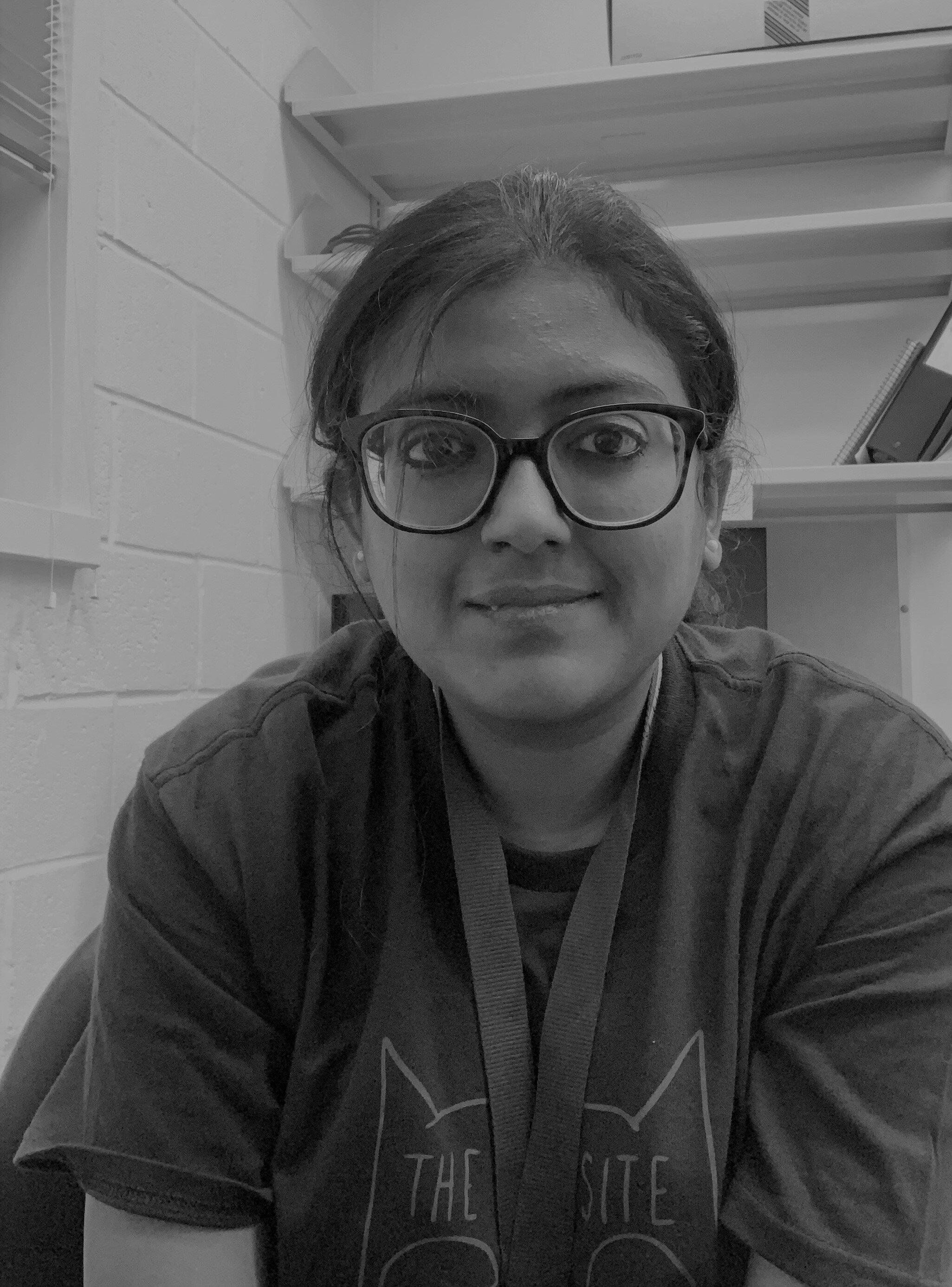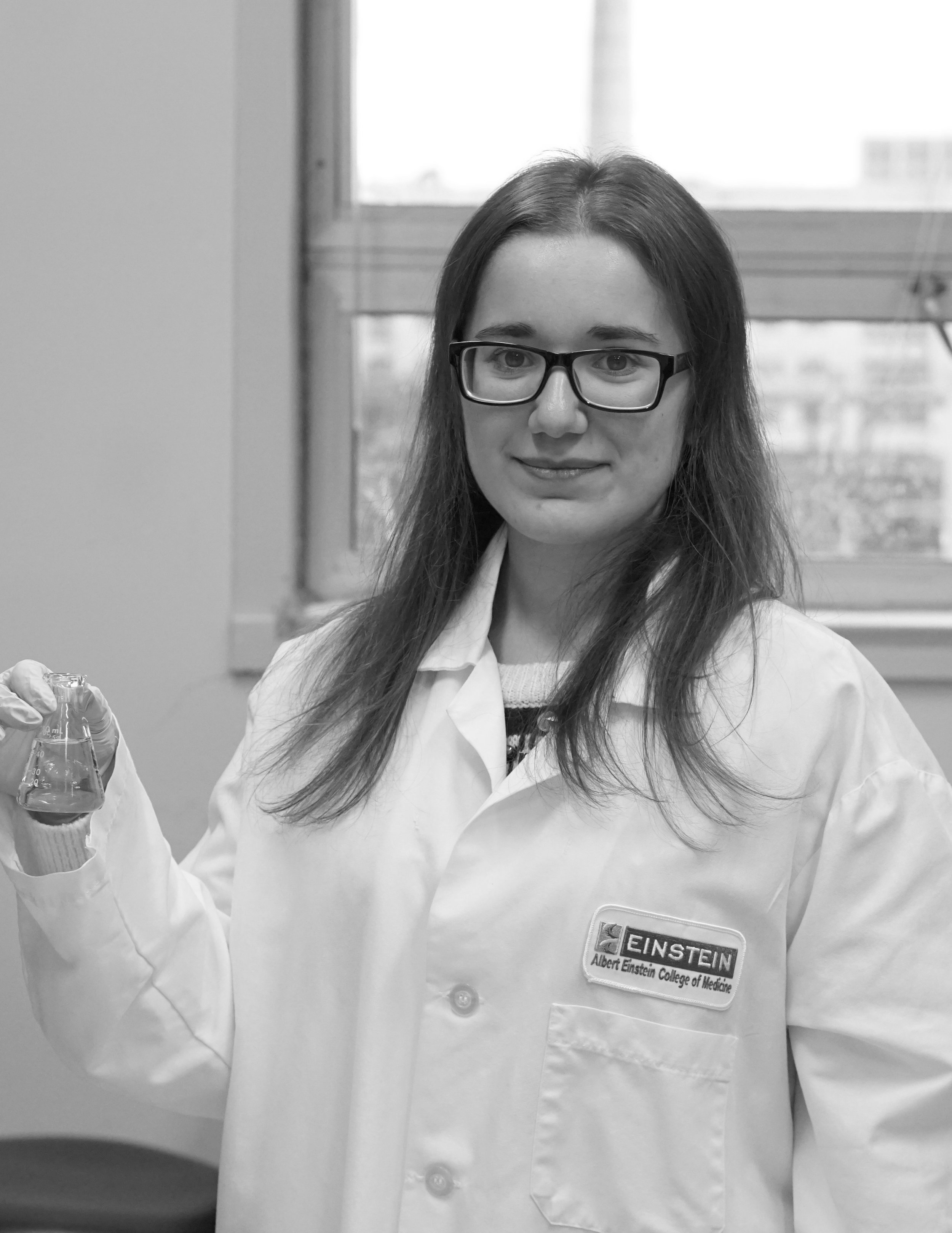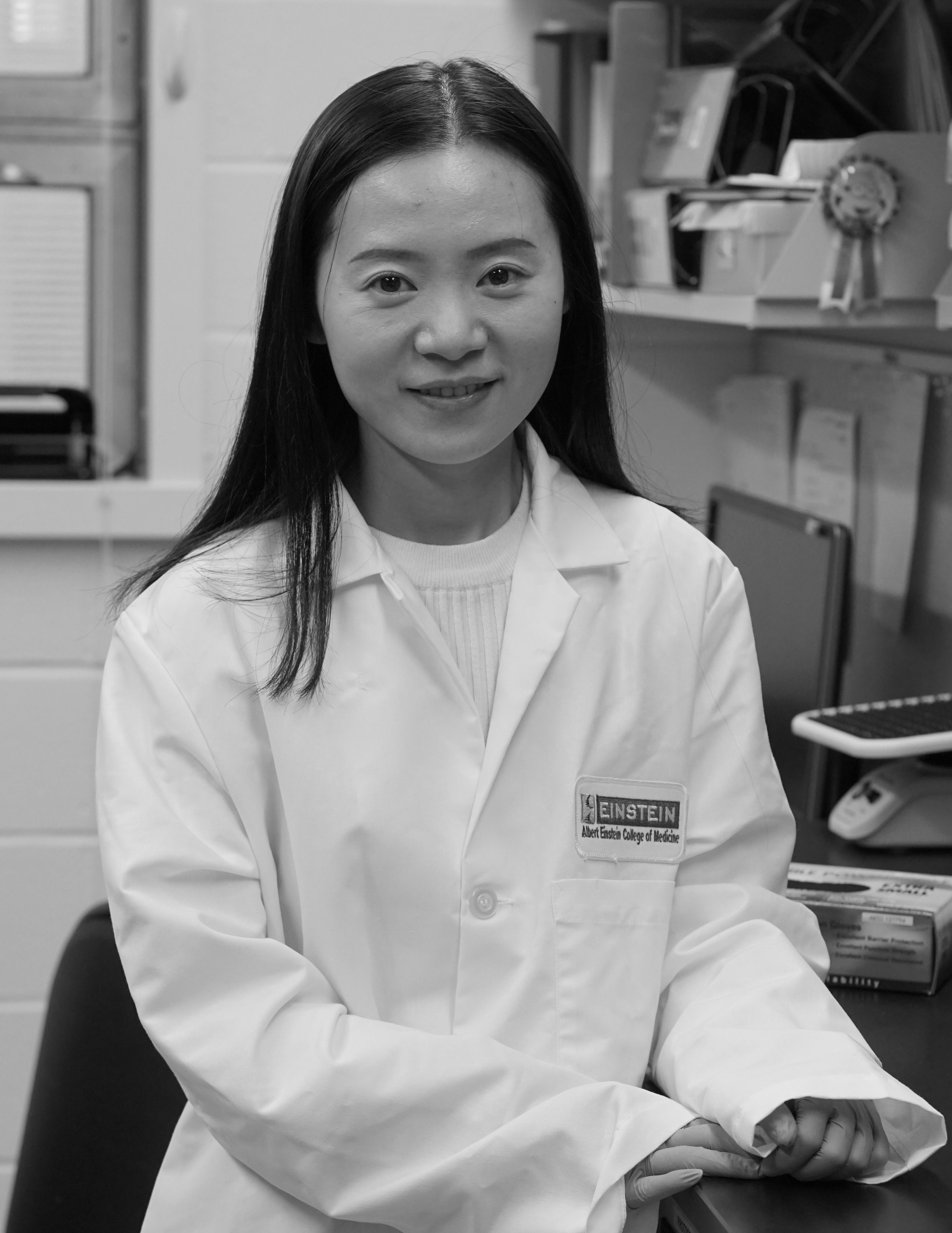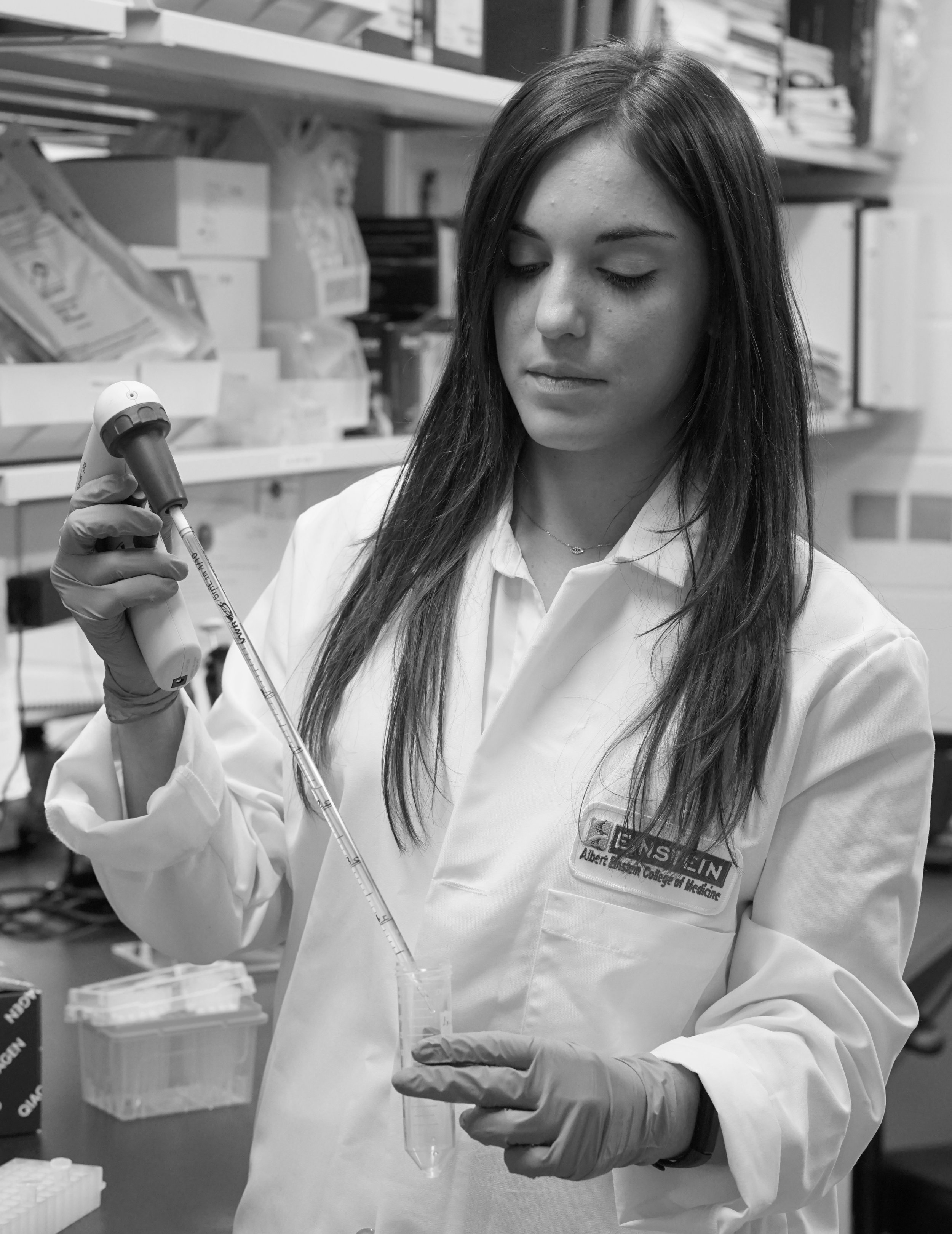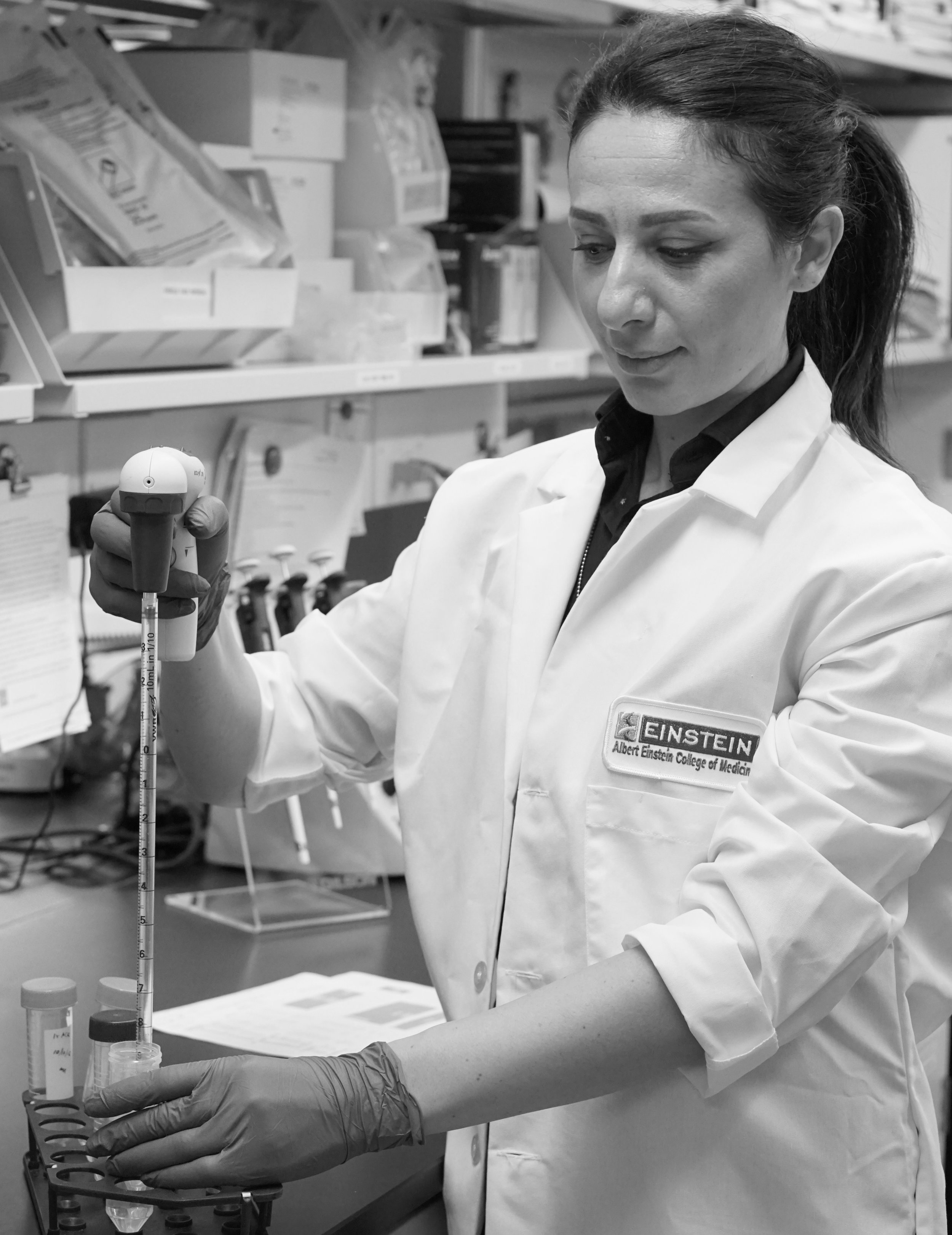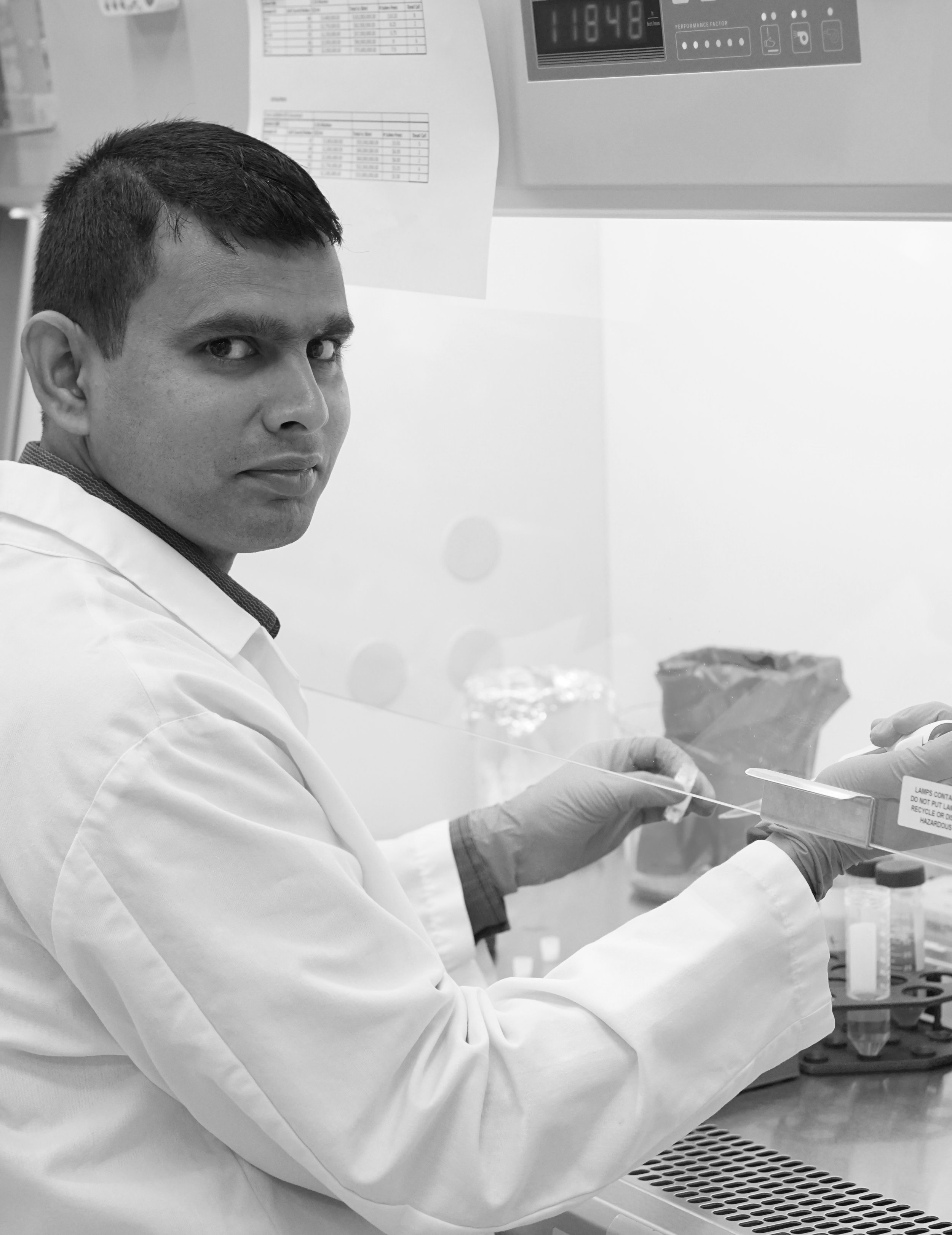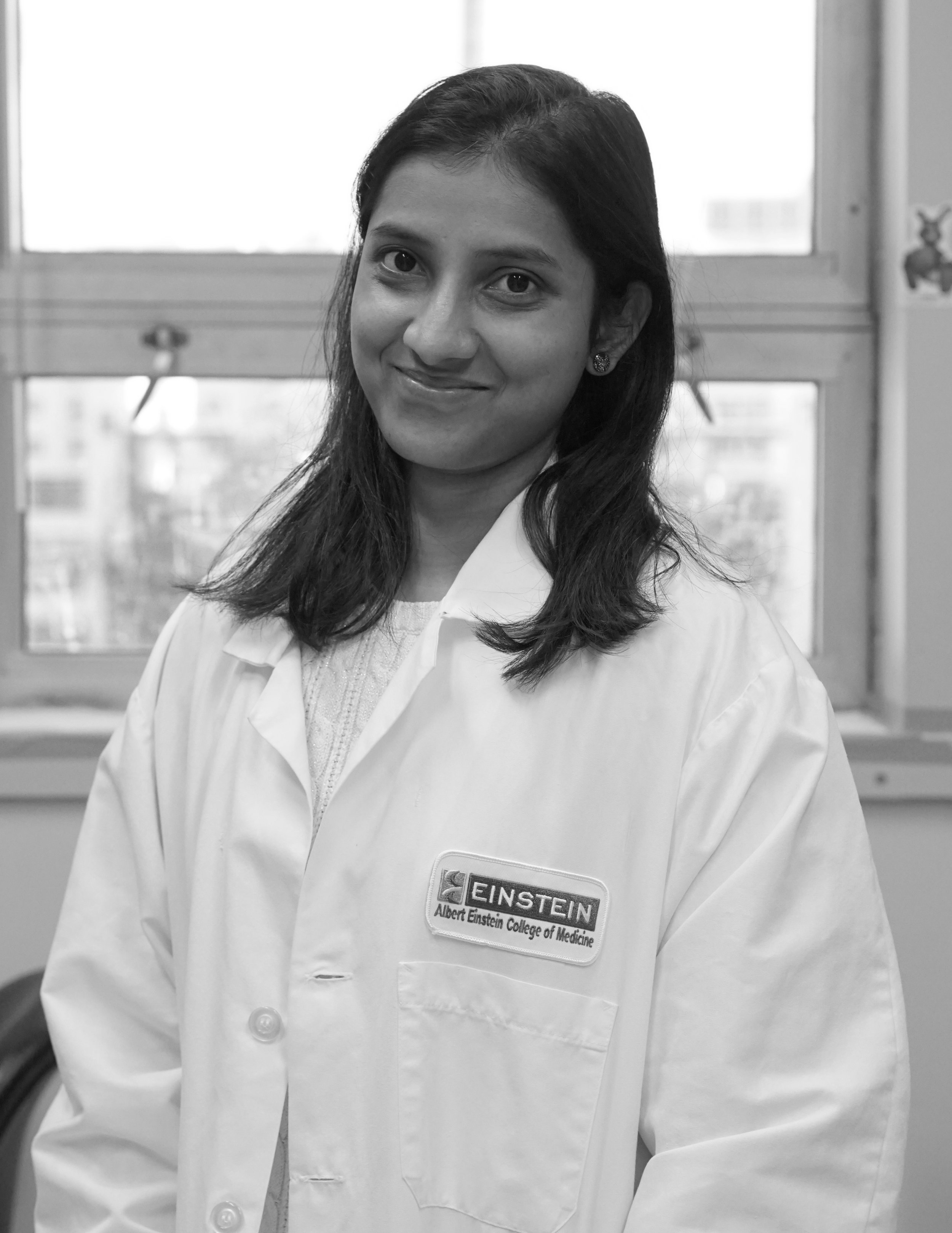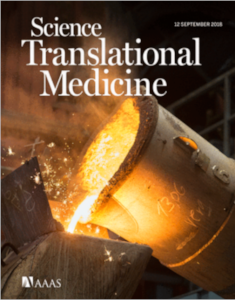


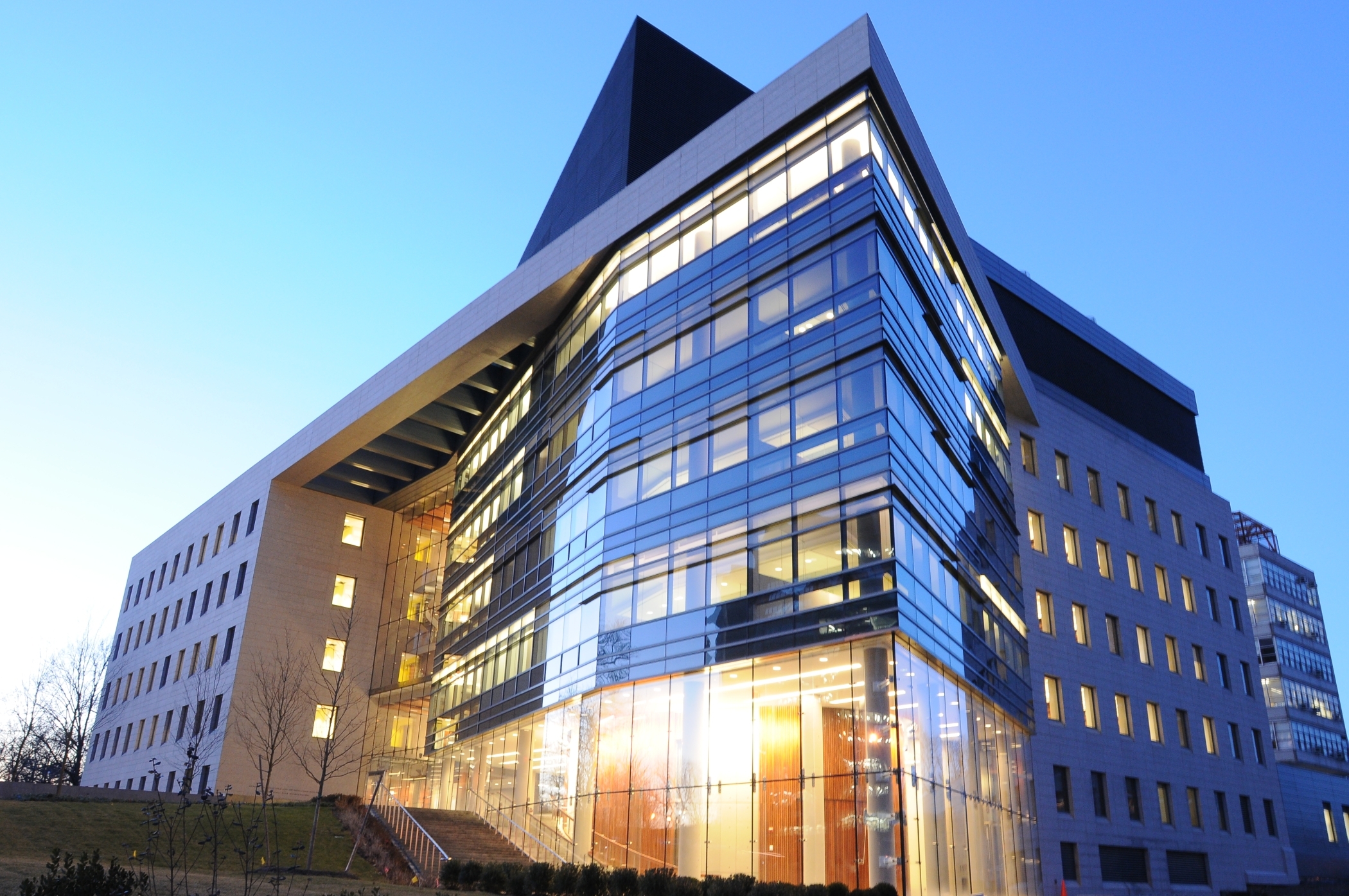

WELCOME TO THE WILL LAB
WELCOME TO THE WILL LAB

Mechanisms of stem cell aging and transformation
Hematopoietic stem cells (HSC) maintain multi-lineage blood formation throughout our lifetime. Balancing stem cell regeneration and differentiation commitment to produce mature blood cells is quintessential for a healthy hematopoietic system. Dysregulation of such HSC fate determination processes can lead to loss of immune function, bone marrow failure, and malignant transformation during aging. However, up to date very little is known about the molecular events driving age-related HSC changes and how they contribute to disease.
Understanding age-associated molecular alterations will not only uncover fundamental mechanisms guiding function of HSCs, but may also allow for therapeutic intervention to “rejuvenate” aged hematopoietic systems and possibly even prevent age-associated hematopoietic diseases. Our mission is to clarify the central mechanisms establishing and guarding sustained hematopoietic stem cell function, particular those that drive leukemogenesis, if disrupted.
We develop innovative genetic mouse models, use ex vivo and in vivo primary mouse and human stem cell assay systems, exploit lentiviral gene transfer, and apply state-of-the-art molecular biology and next generation sequencing techniques.
The labile iron pool as a rheostat for stem cell function
Our recent work has uncovered a key role of the amount of readily accessible intracellular iron (termed labile iron pool, LIP) in instructing HSC self-renewal. We are currently investigating the precise molecular mechanism of action, particularly focusing on metabolic and non-enzymatic molecular pathways relying on iron – a completely uncharted territory for healthy as well as leukemic stem cells.
Gene expression program erosion in aging stem cells and leukemia
Our past work has demonstrated a causative role of even minimal dosage alterations of a key transcription factor instructing hematopoiesis, PU.1, observed in hematopoietic stem cell aging to myeloid leukemia evolution. Our current efforts focus on understanding how such slight deviations from optimal PU.1 dosage lead to the erosion of PU.1-dependent gene expression programs, and in which way a slightly altered PU.1 gene expression network can functionally cooperate with age-associated inactivation of epigenetic regulators (TET2 and DNMT3A).
Identification of molecular safeguards of cancer stem cells
Teamed-up with Dr. Ana Maria Cuervo (Dept. of Developmental & Molecular Biology), the discoverer of a highly precise protein degradation pathway named chaperone-mediated autophagy, we are investigating the role of this stress-related molecular defense mechanism in leukemic stem cell evolution and maintenance.

MEMBERS
MEMBERS
Our Team
Britta Will, PhD - Principal Investigator
Malini Gupta, PhD - Postdoctoral Scientist
Sonia Gallego, B.Sc. - Lab Manager/Research Technician
Yuhong Ma, PhD - Postdoctoral Scientist
Maria Aivalioti, M.Sc. - PhD Student
Aliona Zintiridou - Research Technician
Yun-Ruei Kao, PhD - Research Assistant Professor
Elizabeth Pan, M.Sc. - PhD Student
CANCER STEM CELL PHARMACODYNAMICS UNIT
Victor J. Thiruthuvanathan, M.Pharm. - Associate
Madhuri R. Tatiparthy, M.Sc. - Research Technician
PAST MEMBERS
CORE TEAM:
Mariana Ferreira, M.Sc. - Research Technician (2015-2018), now research technician at MSKCC
Margarida Teixeira, Ph.D. - Postdoctoral Research Fellow (2016-2018), now Research Applications Scientist with Beckton Dickinson, NY, NY
Lumie Benard, M.Sc. - Research Technician CSC-PD (2015-2019), now Research Technician at Stelexis Pharmaceuticals, Bronx, NY
Sally Cole, B.Sc. - Research Technician CSC-PD (2016-2018), now Ph.D. student at Columbia University, NY, NY
Stephen Ruiz, B.Sc. - Research Technician and Web Master (2017-2019), now Ph.D. student at Weill Cornell Medical Center, NY, NY
Ujunwa C. Okoye-Okafor, Ph.D. - Postdoctoral Fellow and Research Associate (2018-2021), now Senior Research Associate at Hackensack Meridian Health
VISITING TRAINEES:
lab events
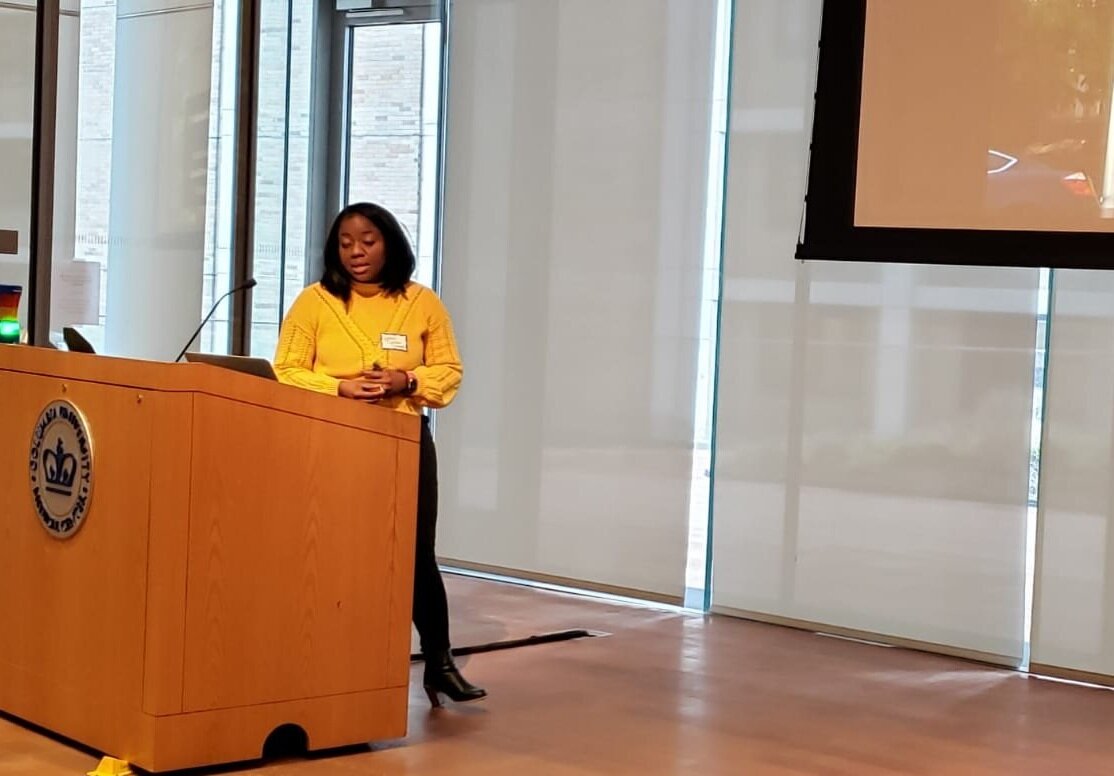
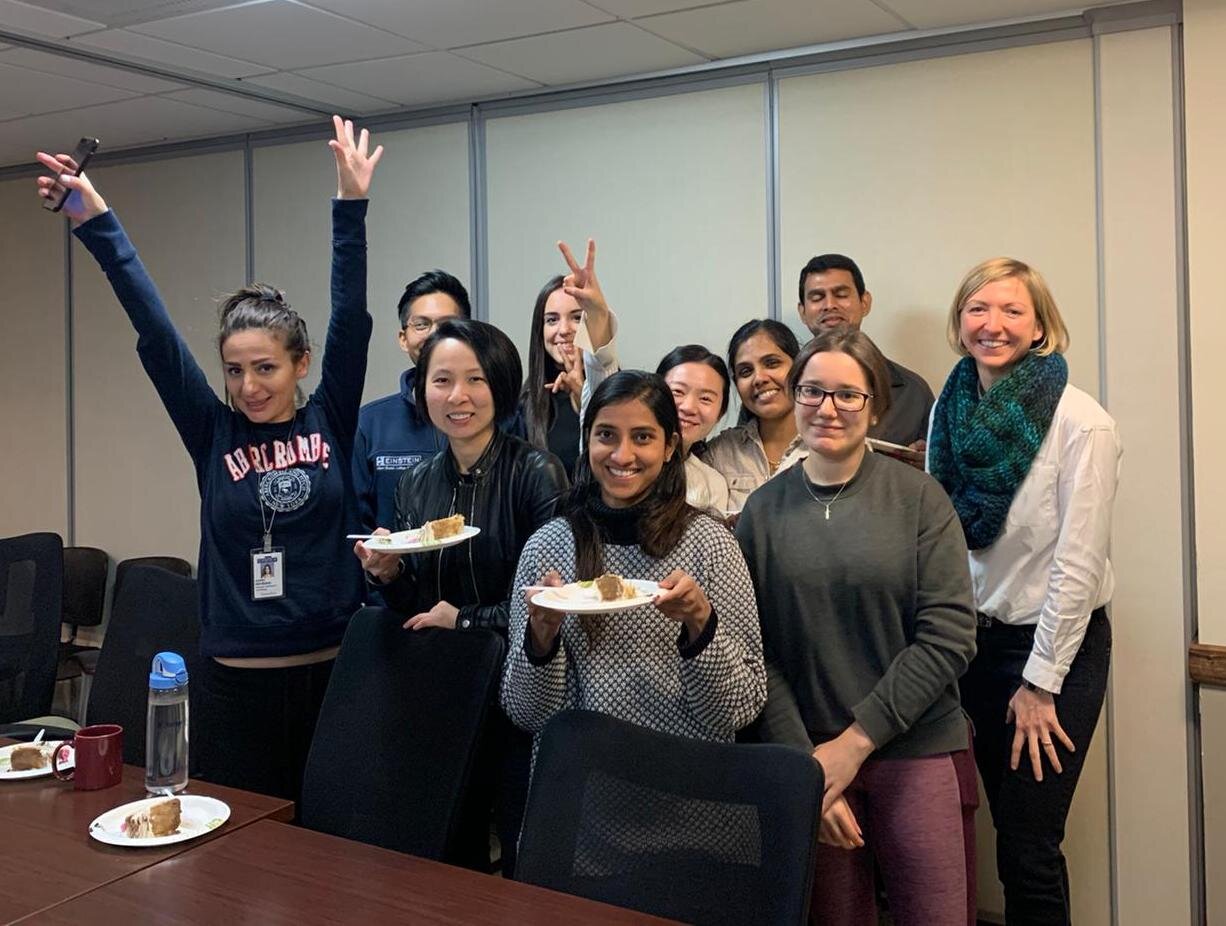
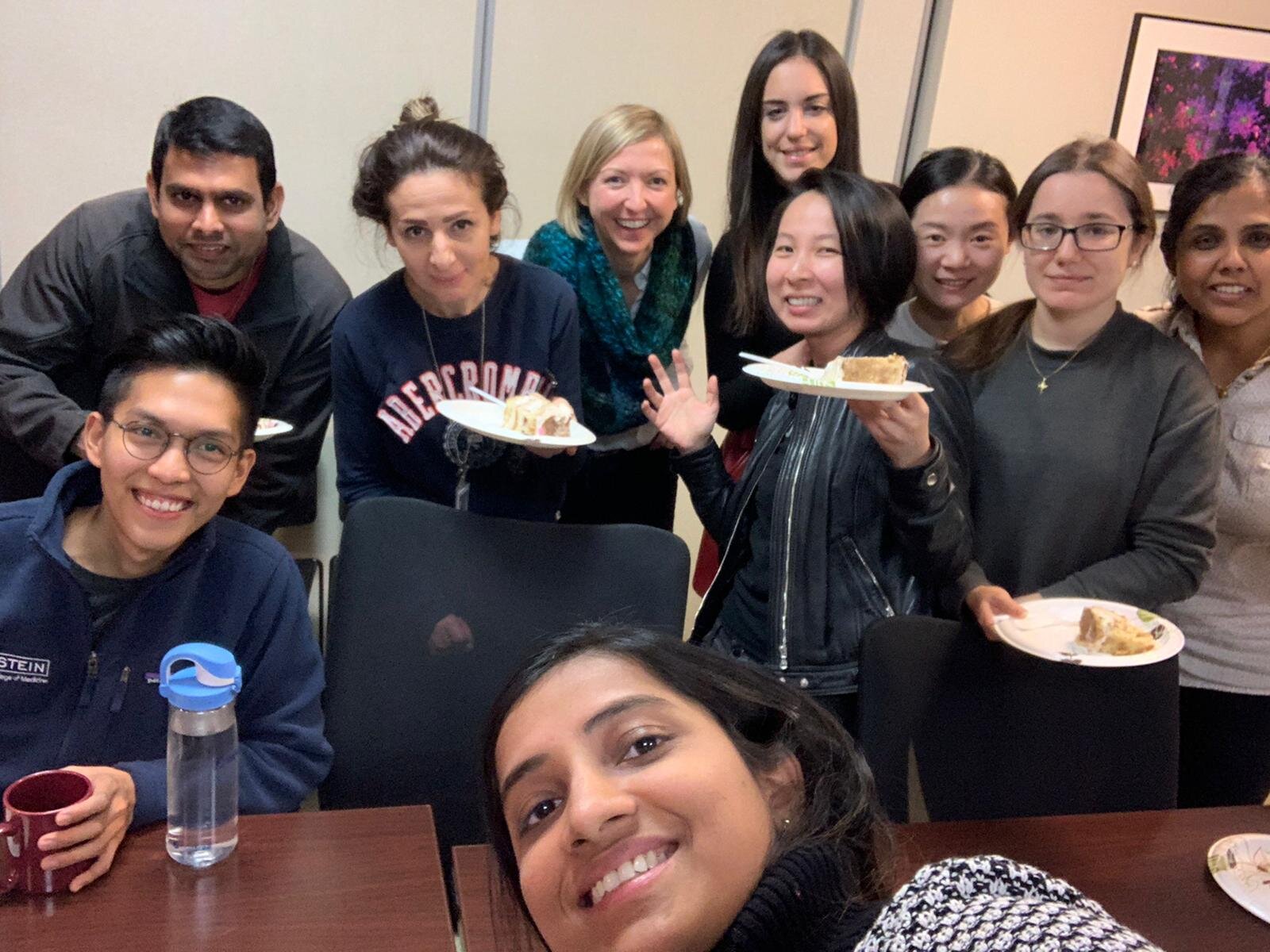
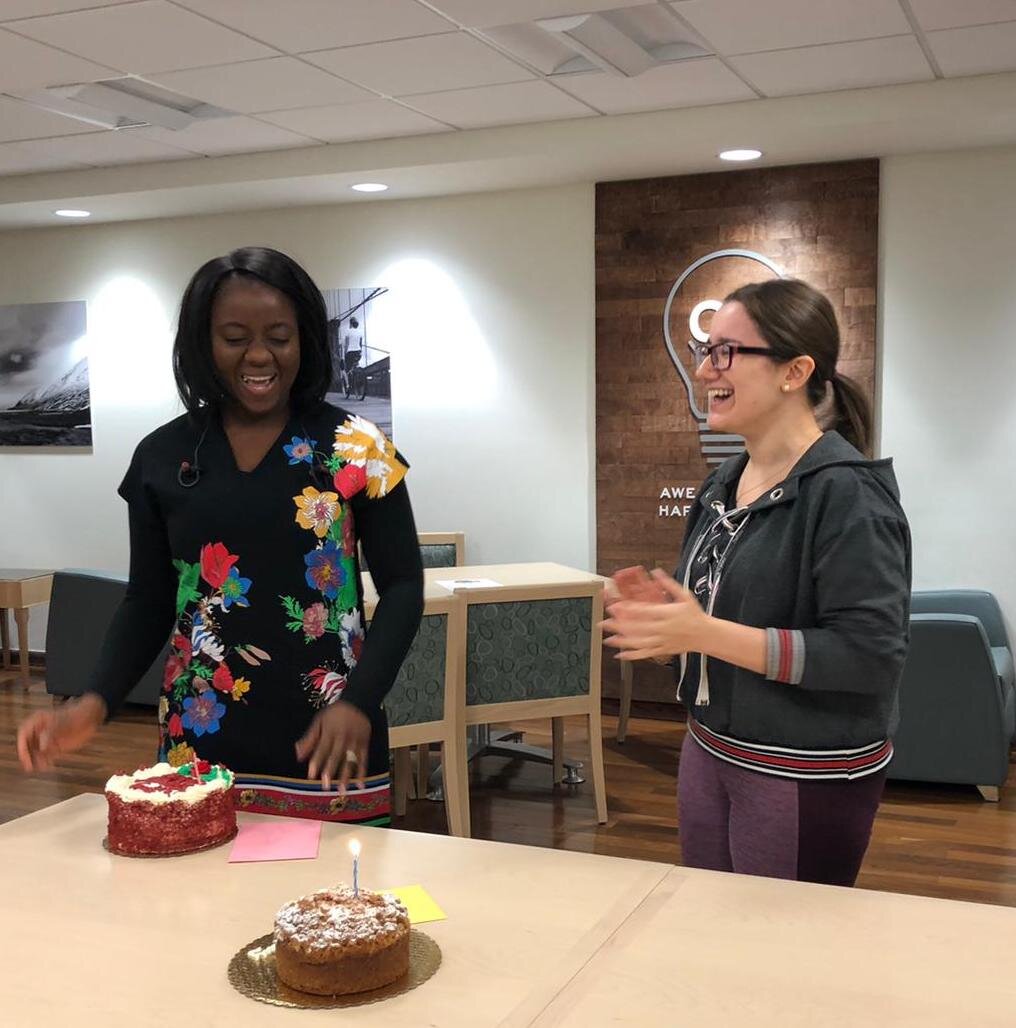
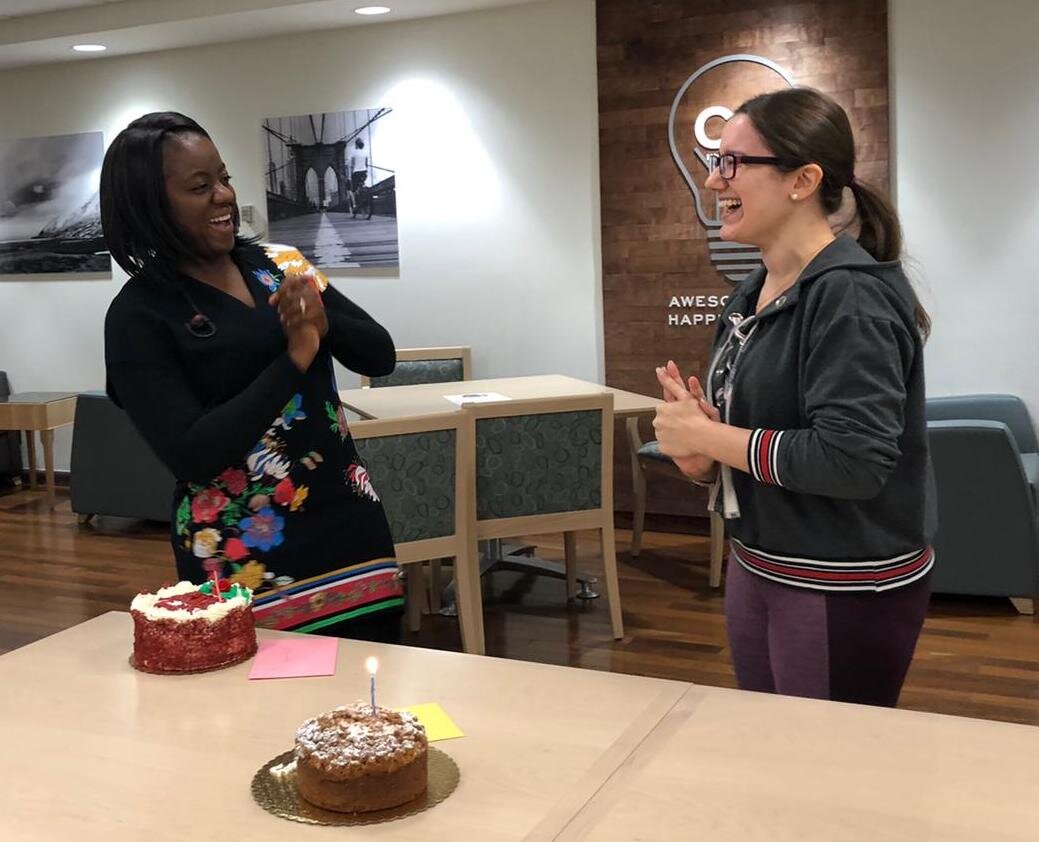
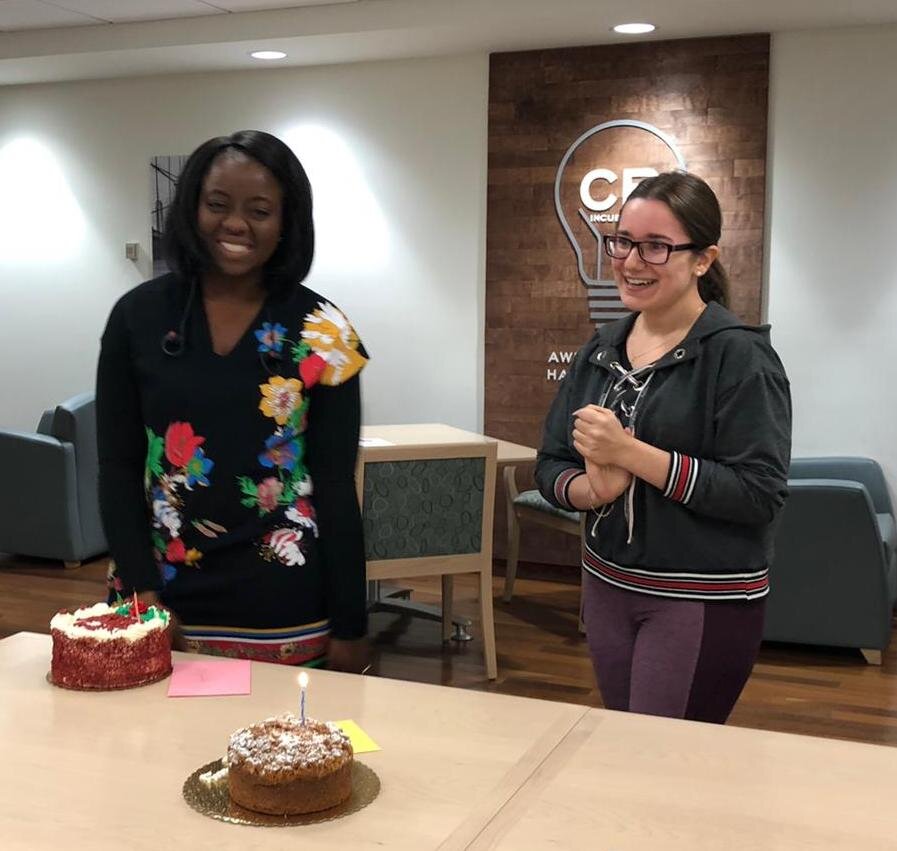
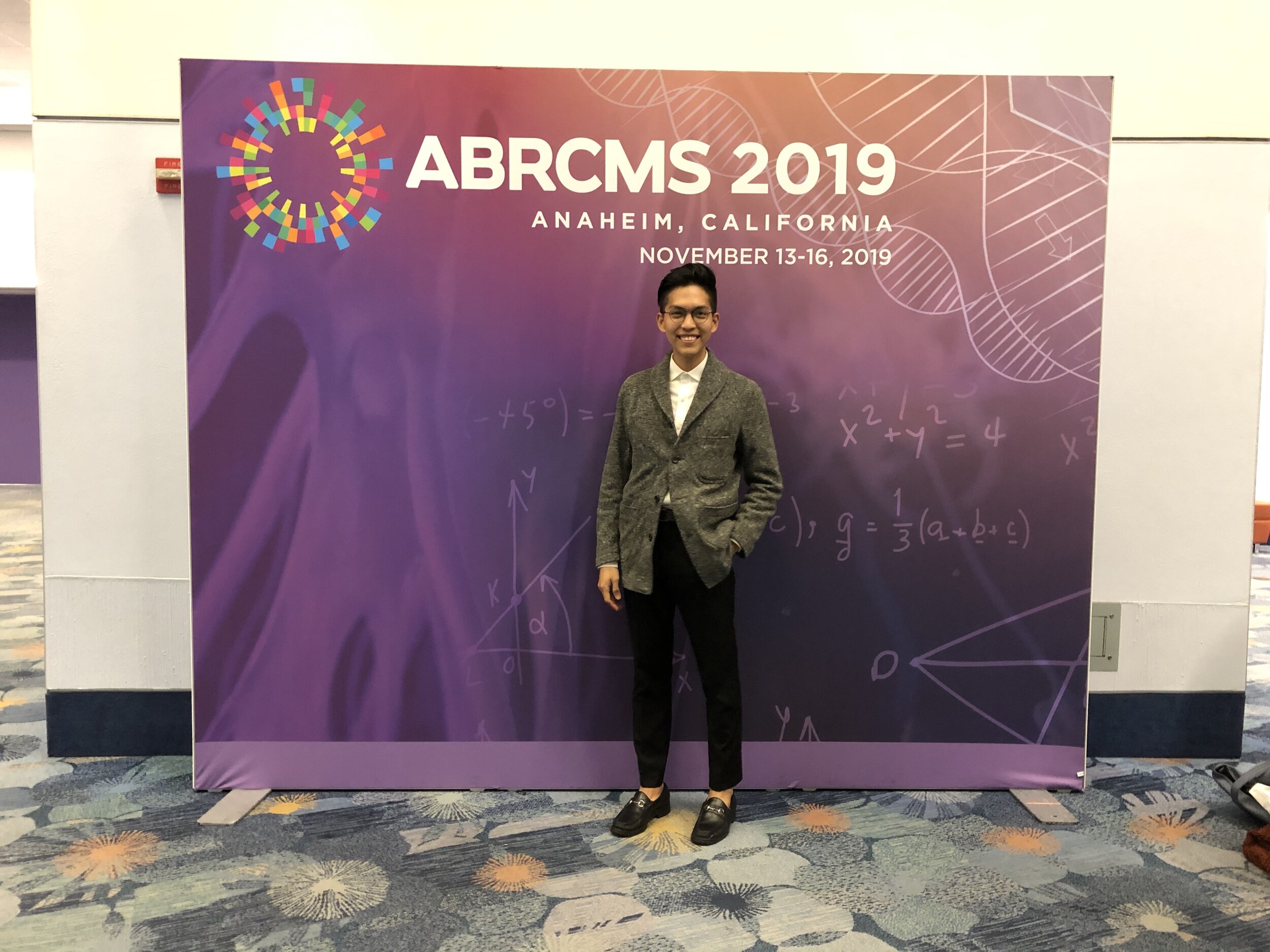
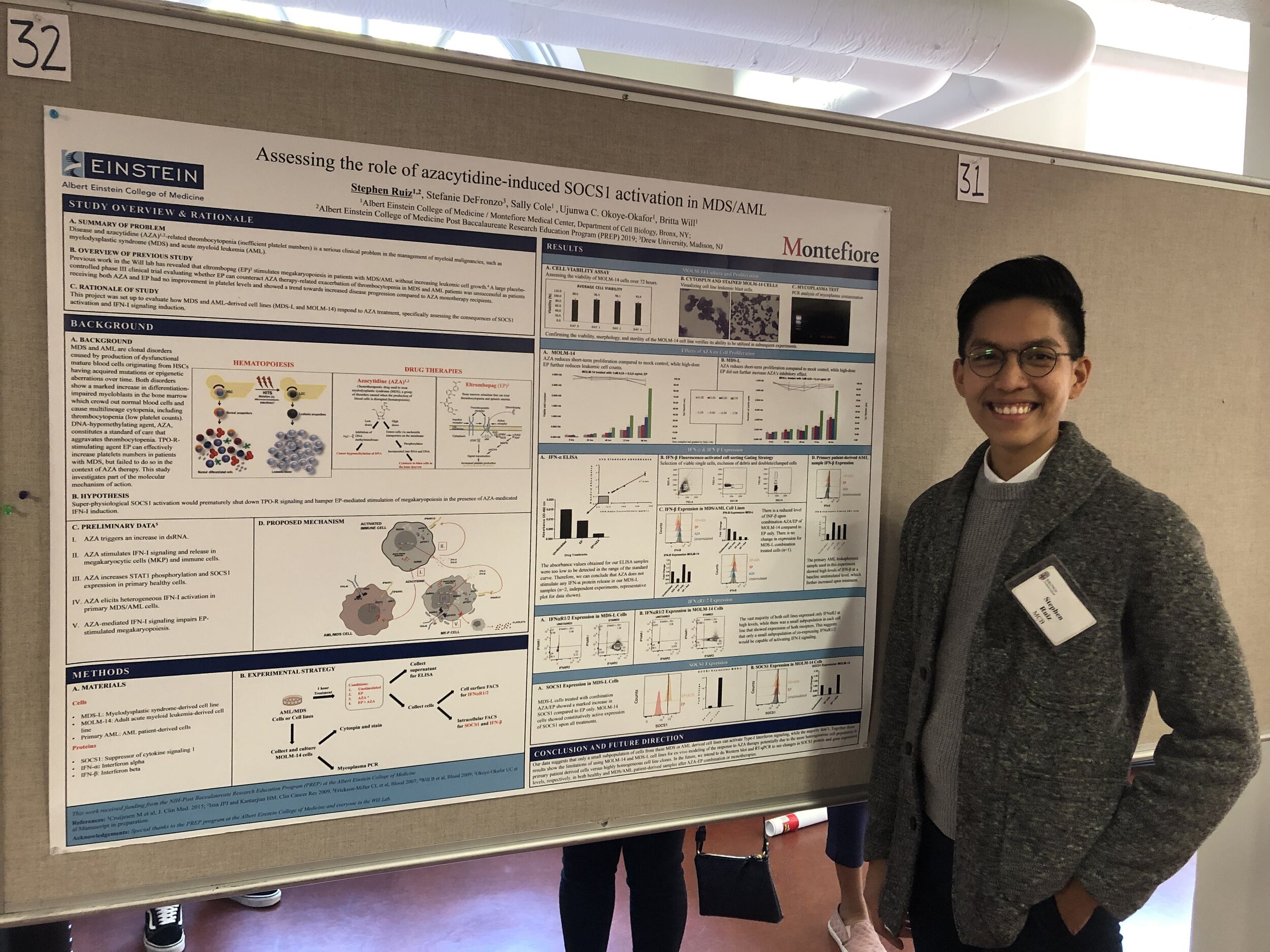
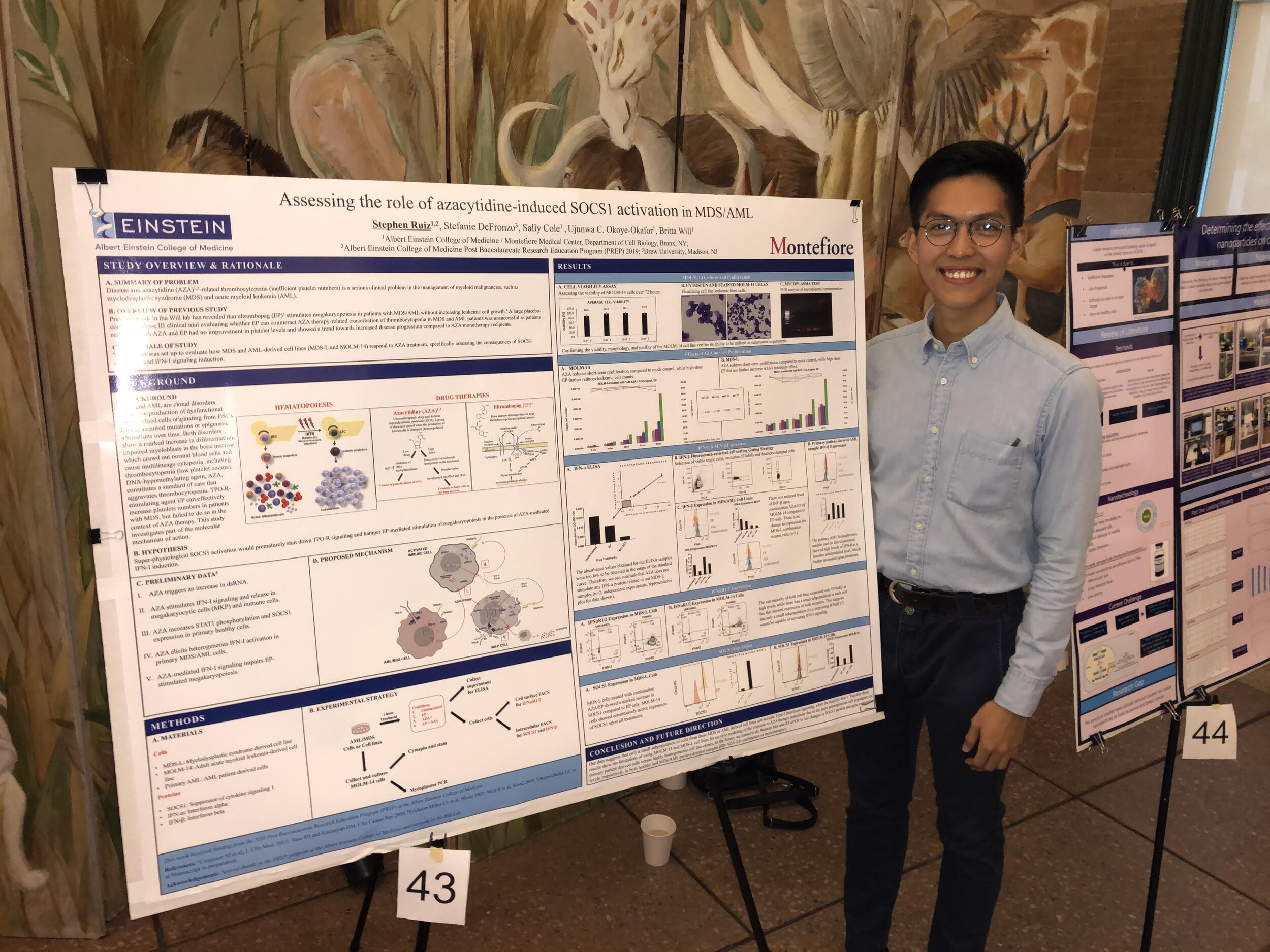
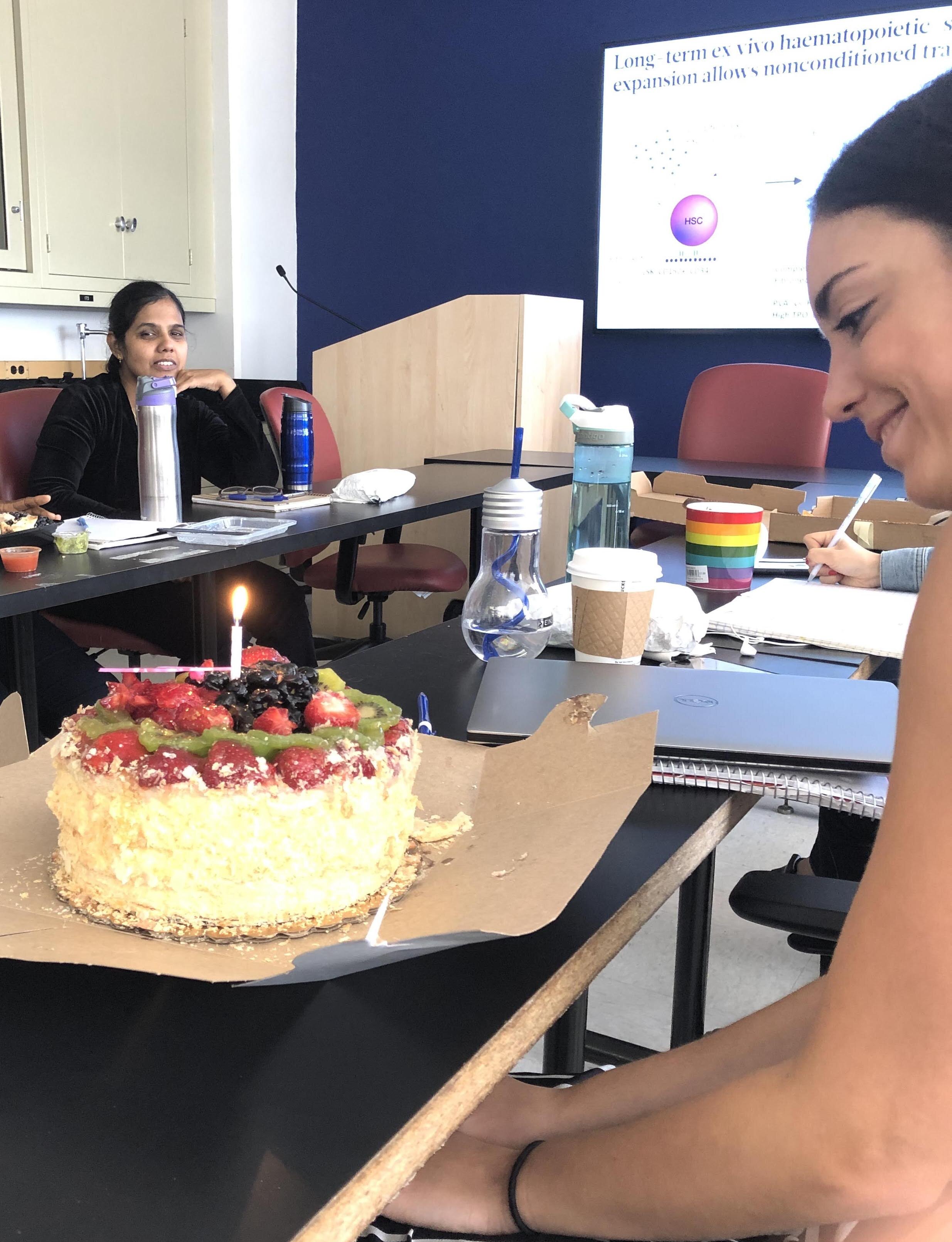
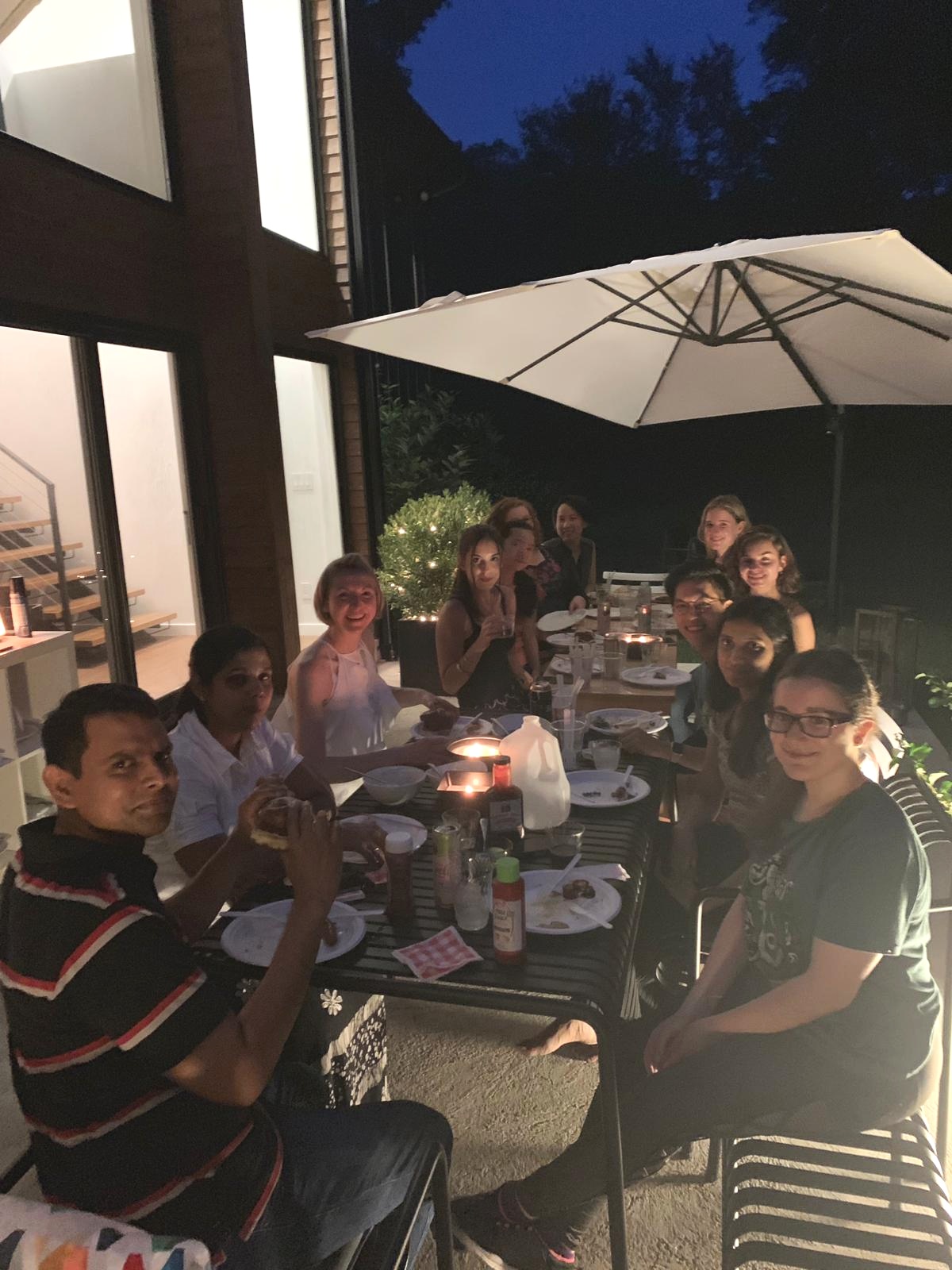
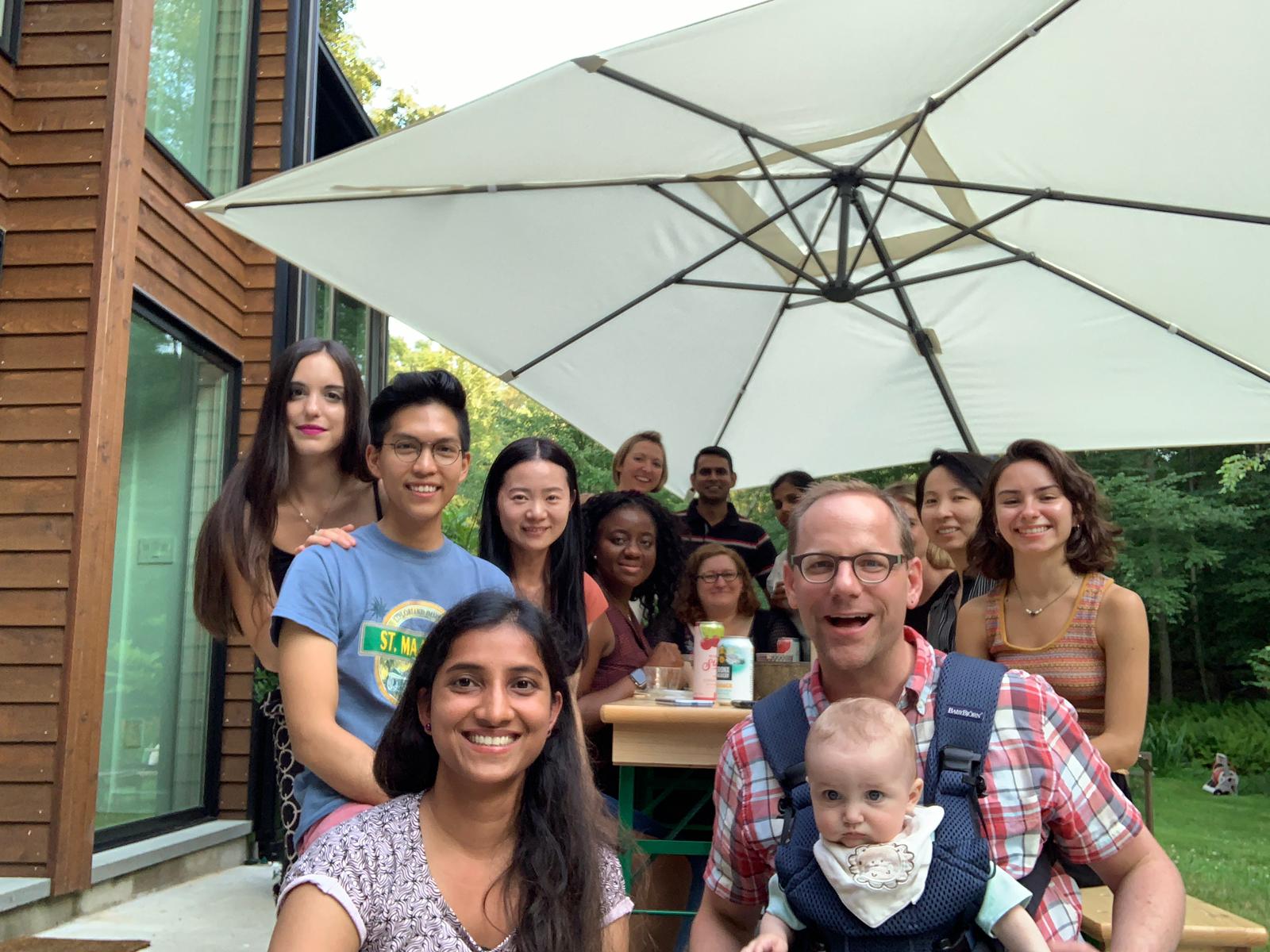
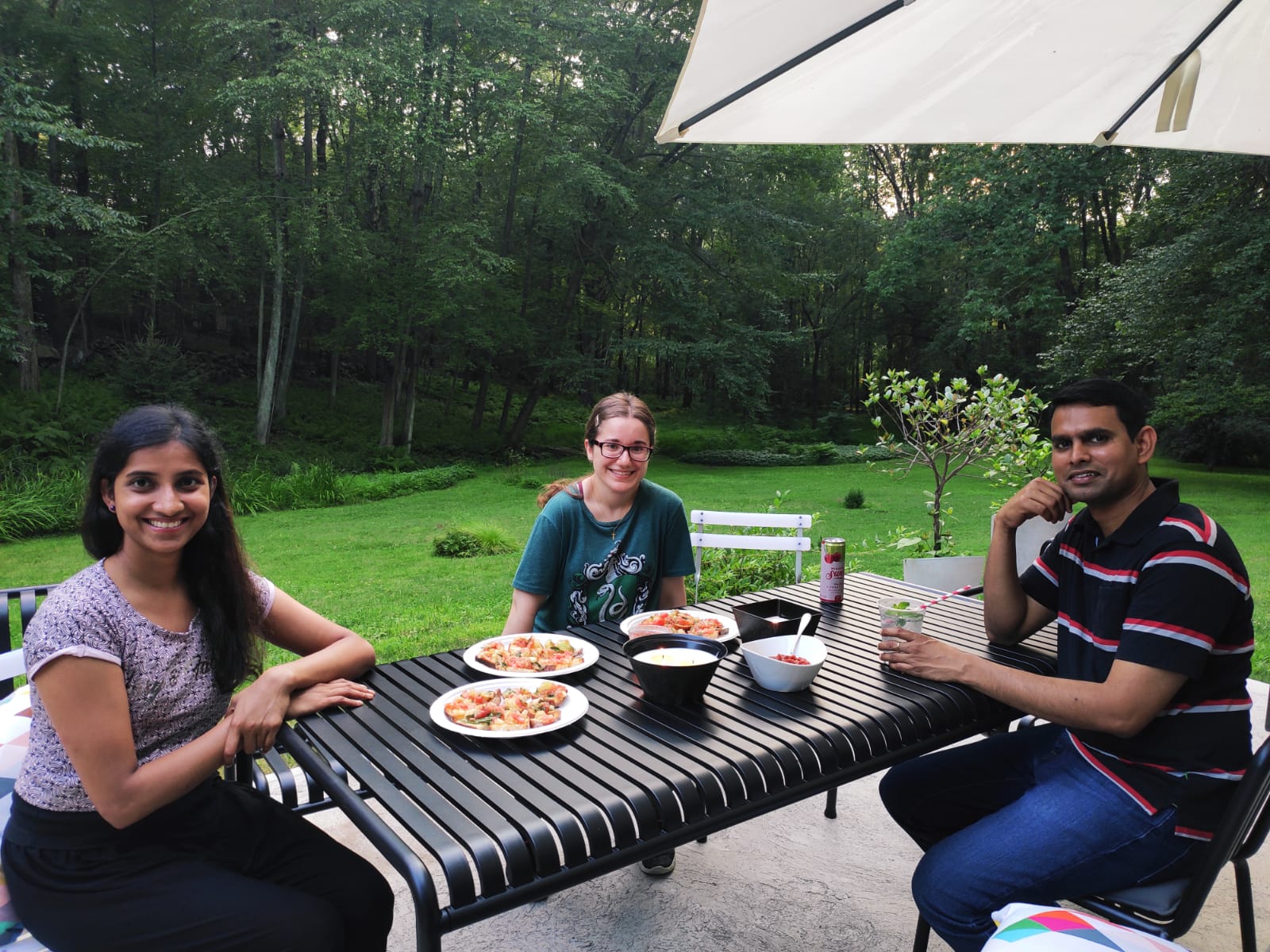
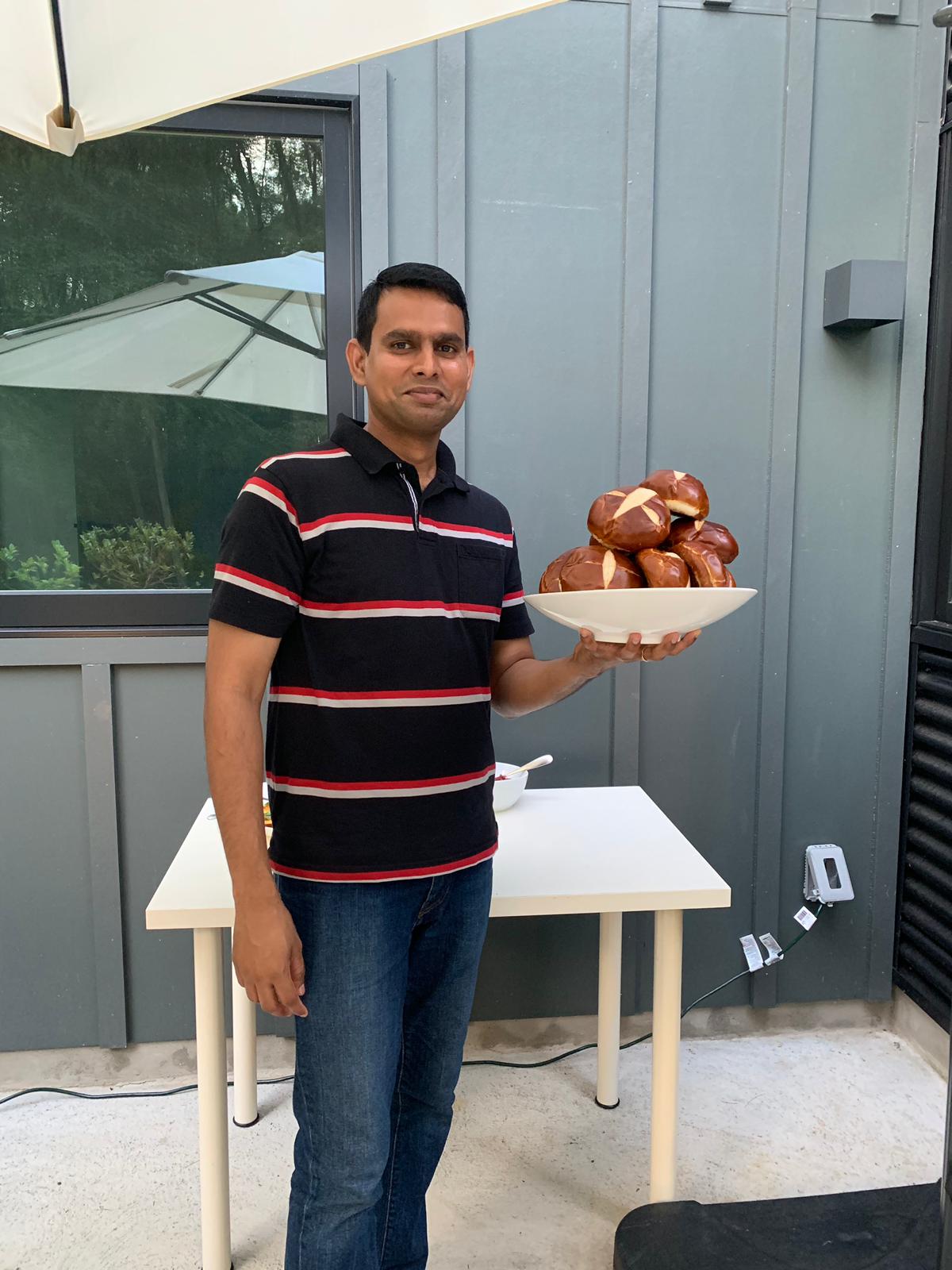


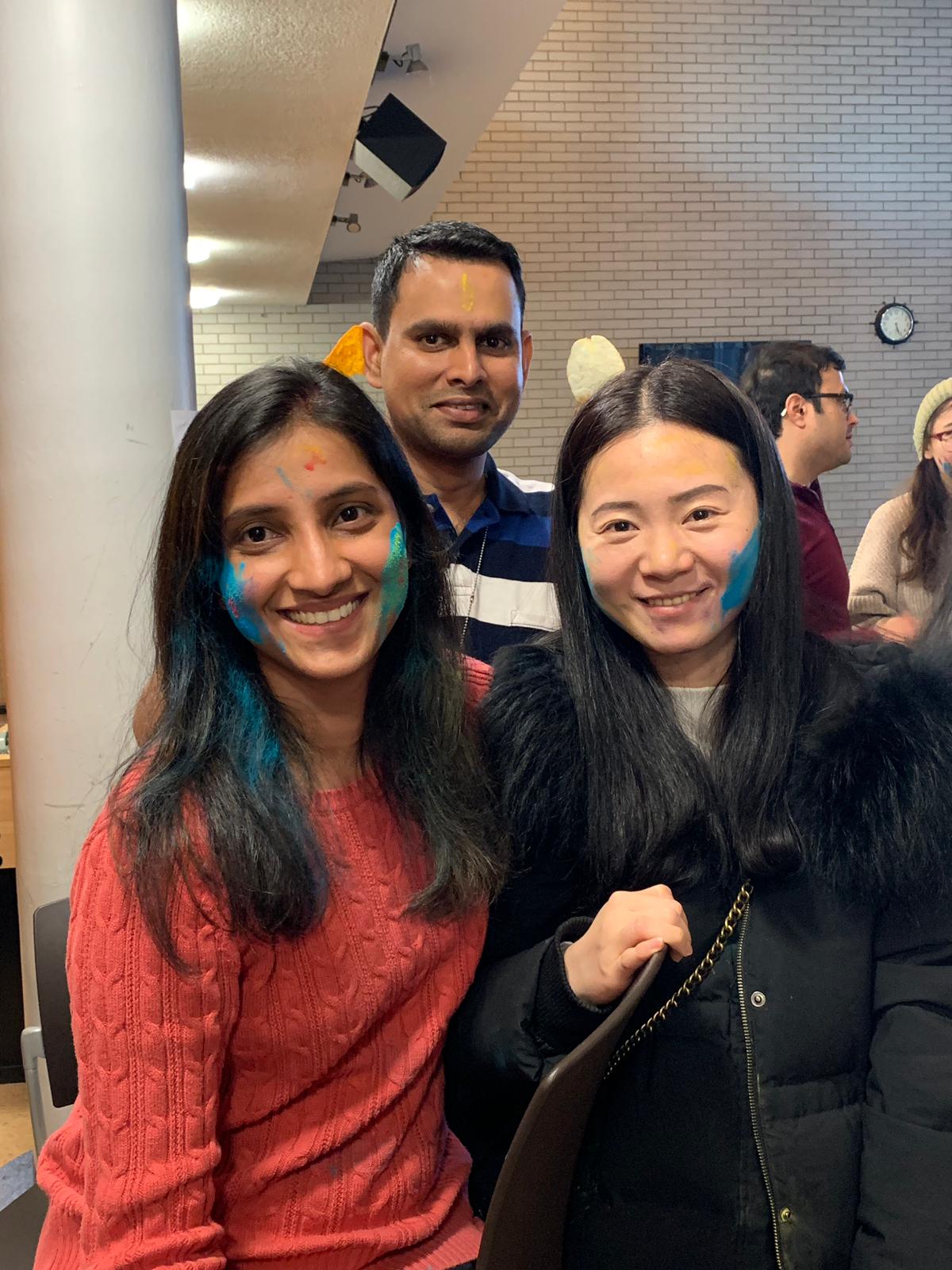
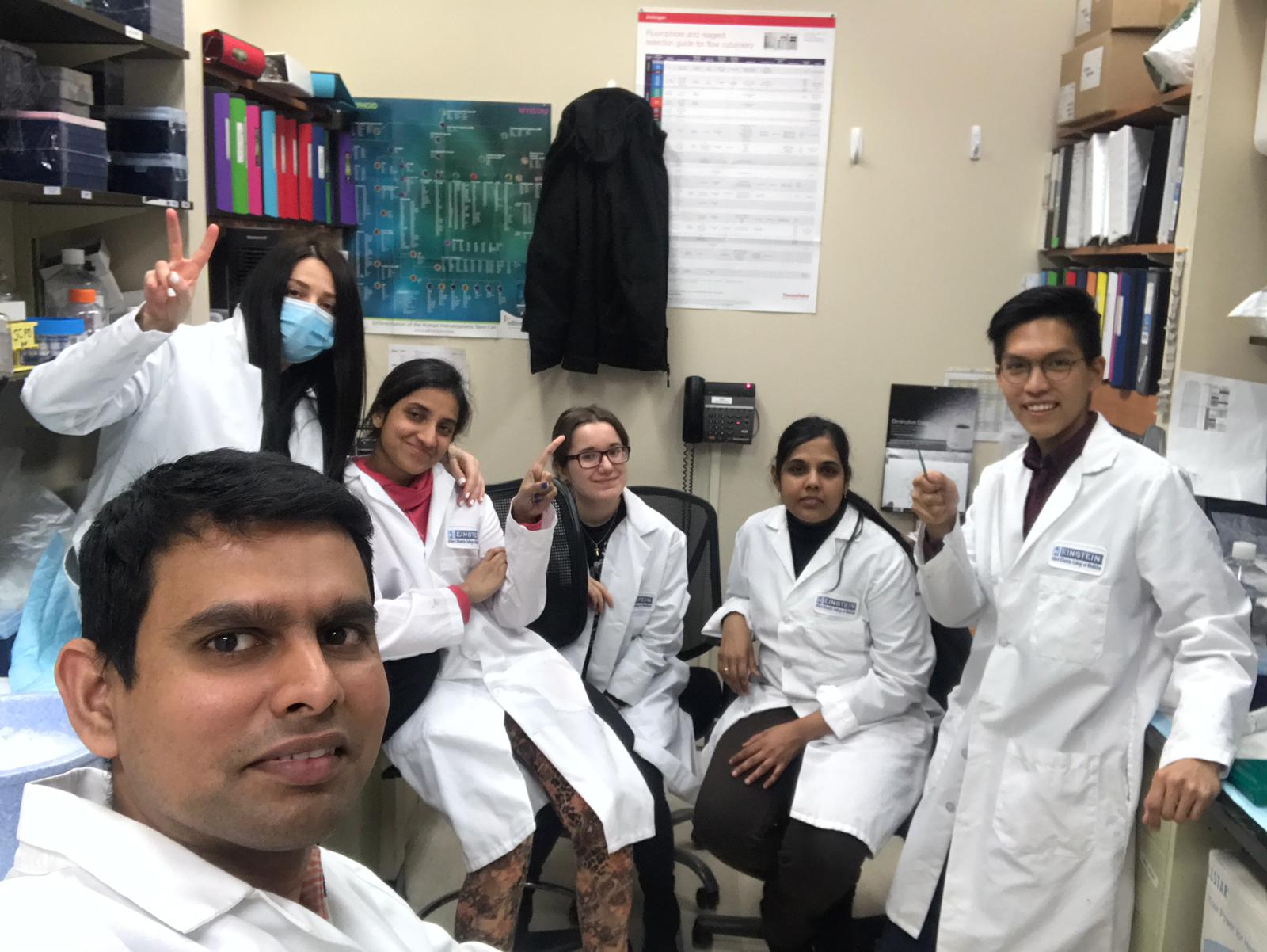
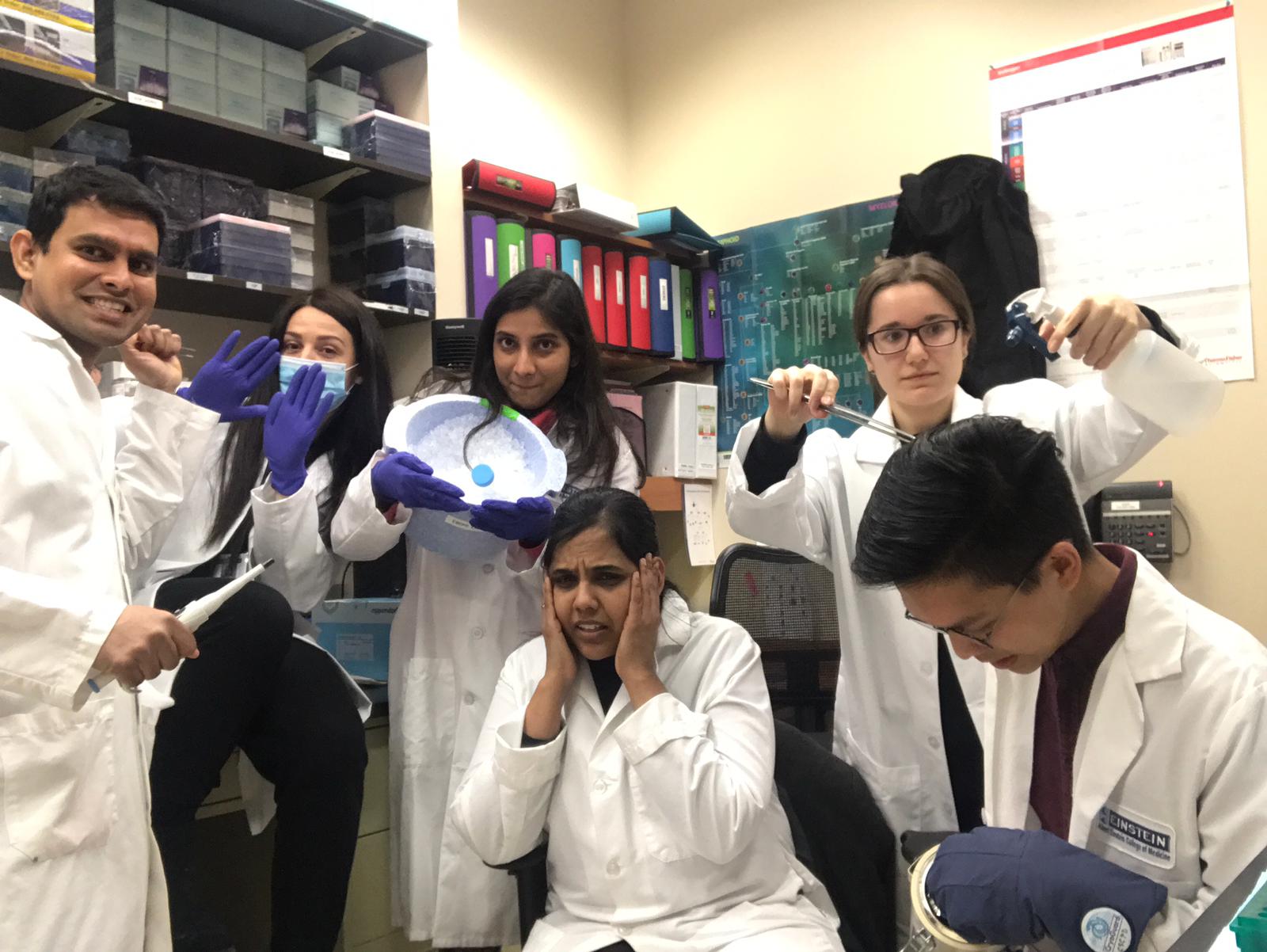
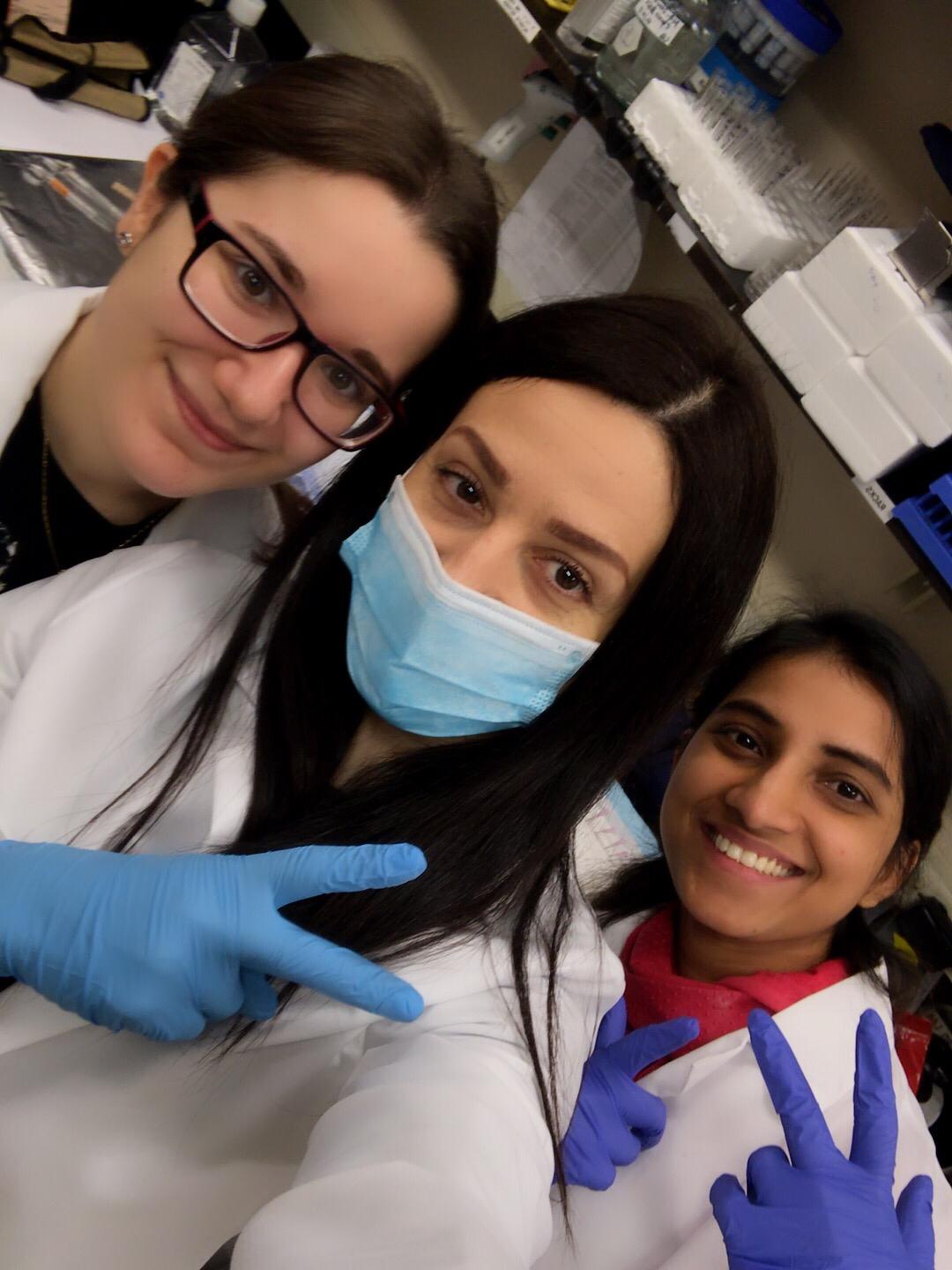
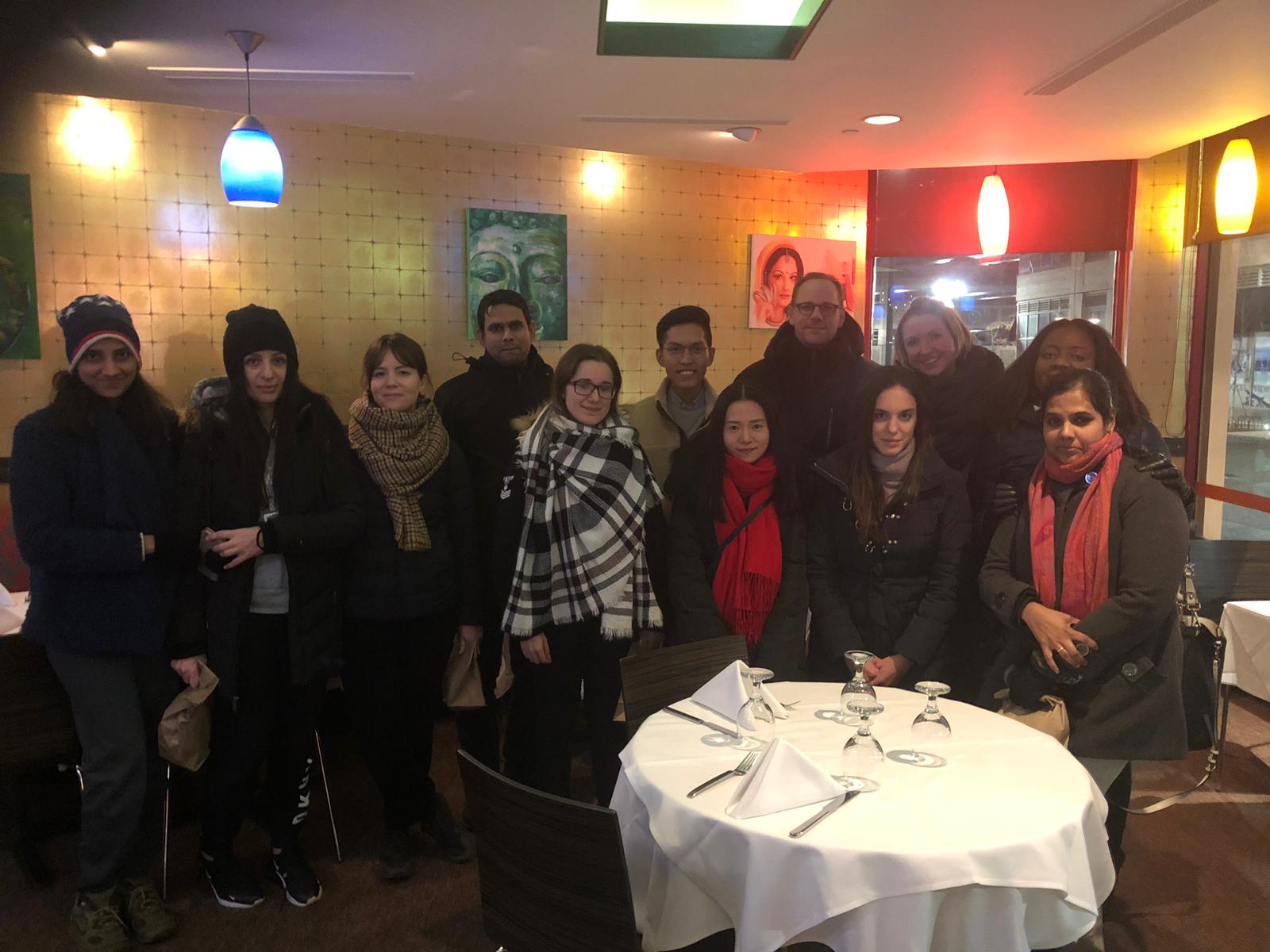
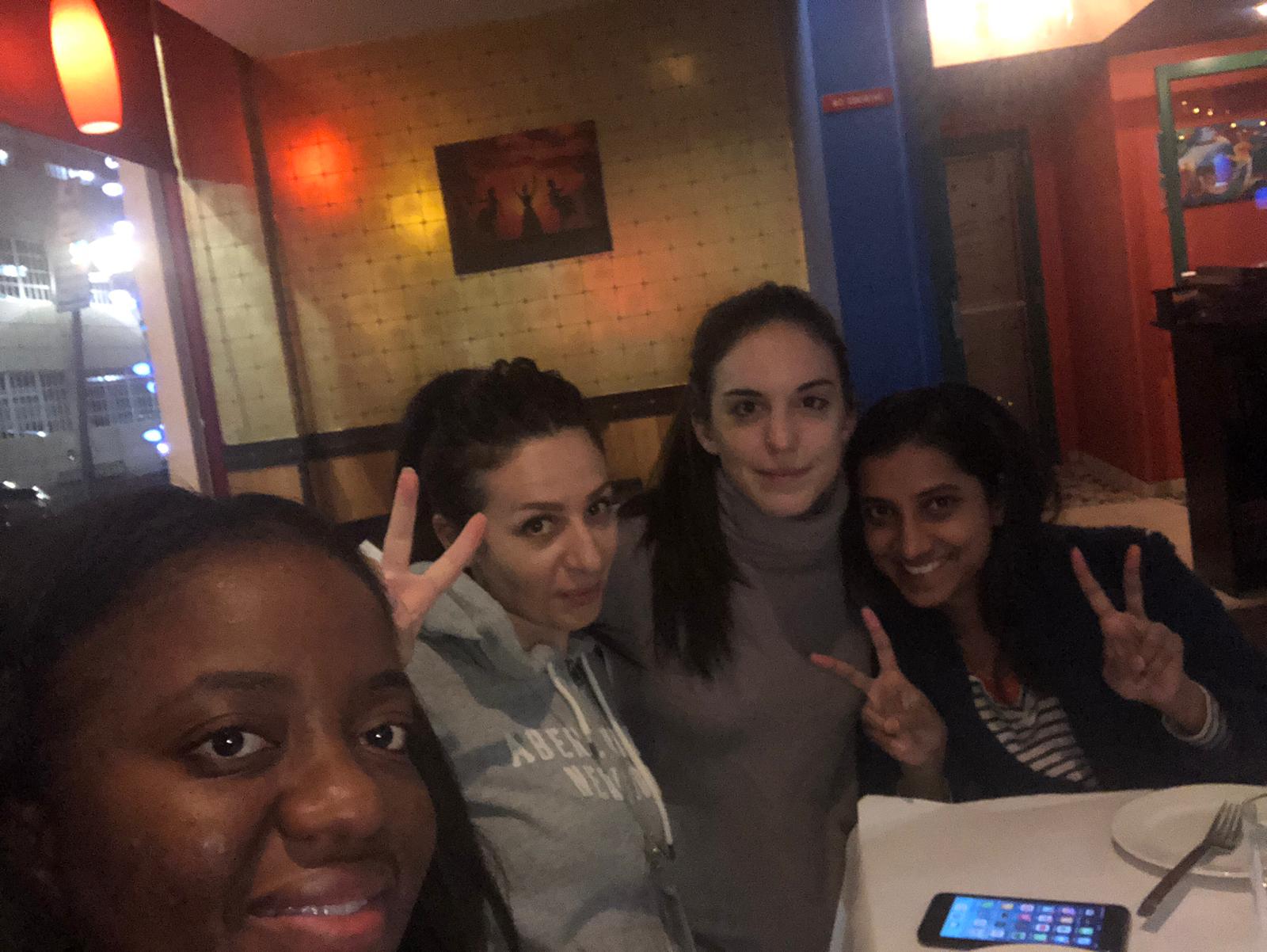
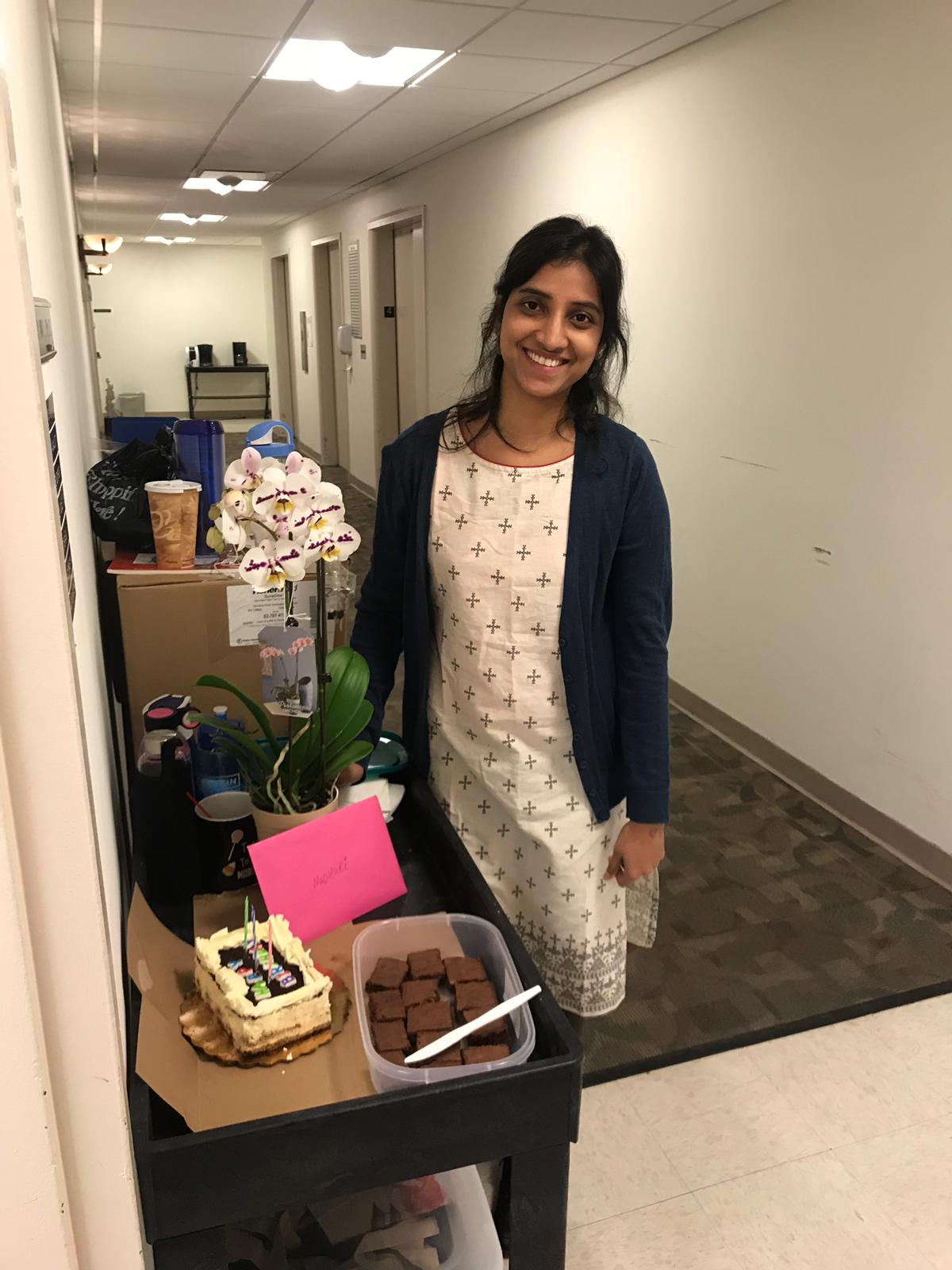
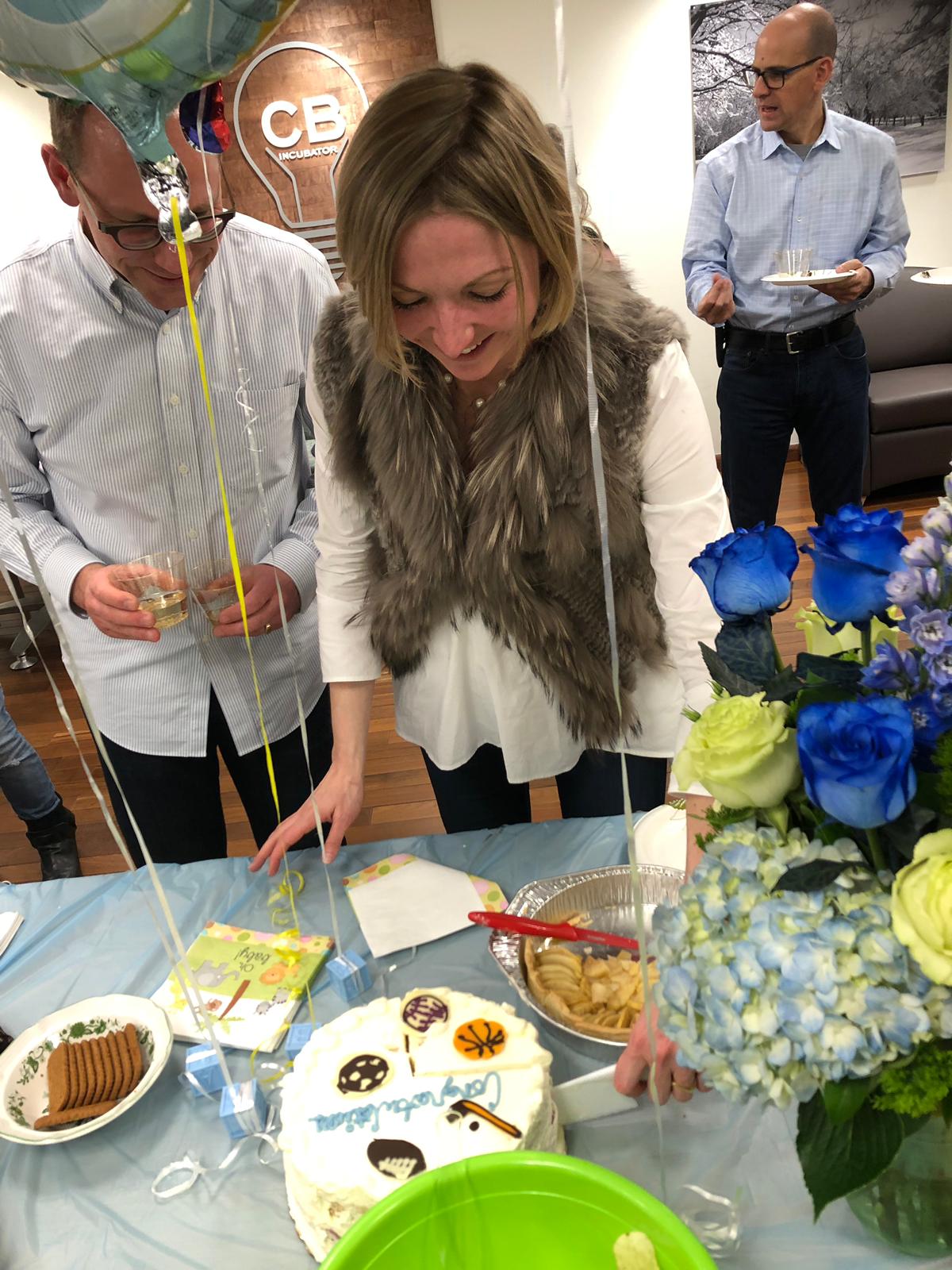

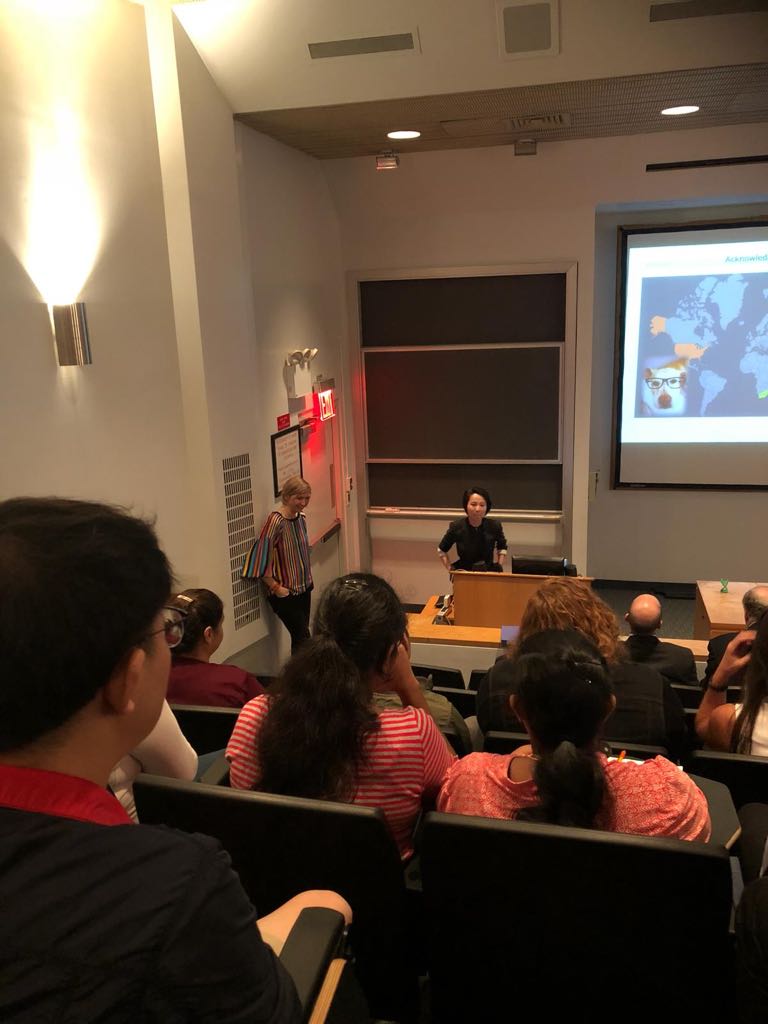
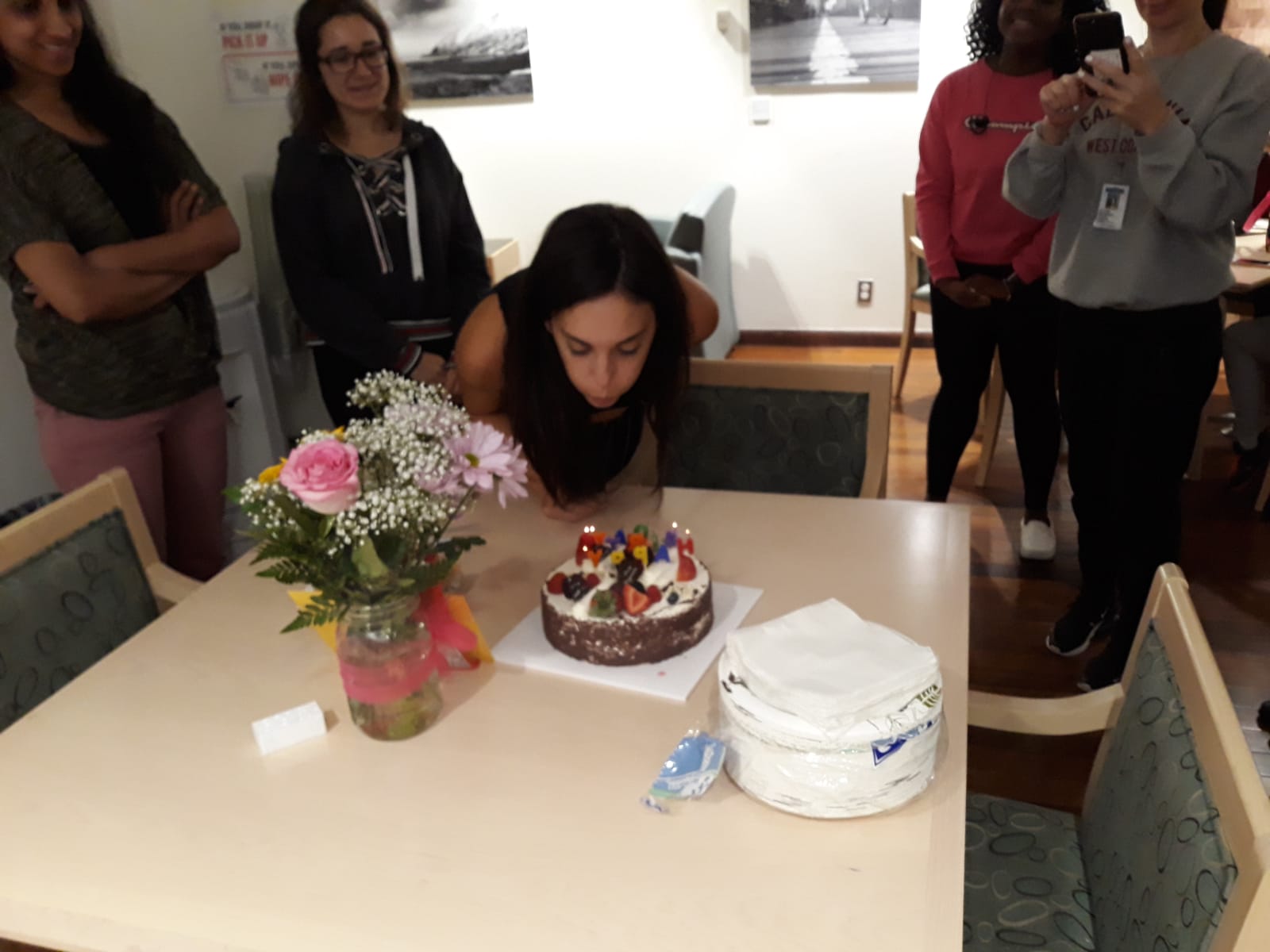
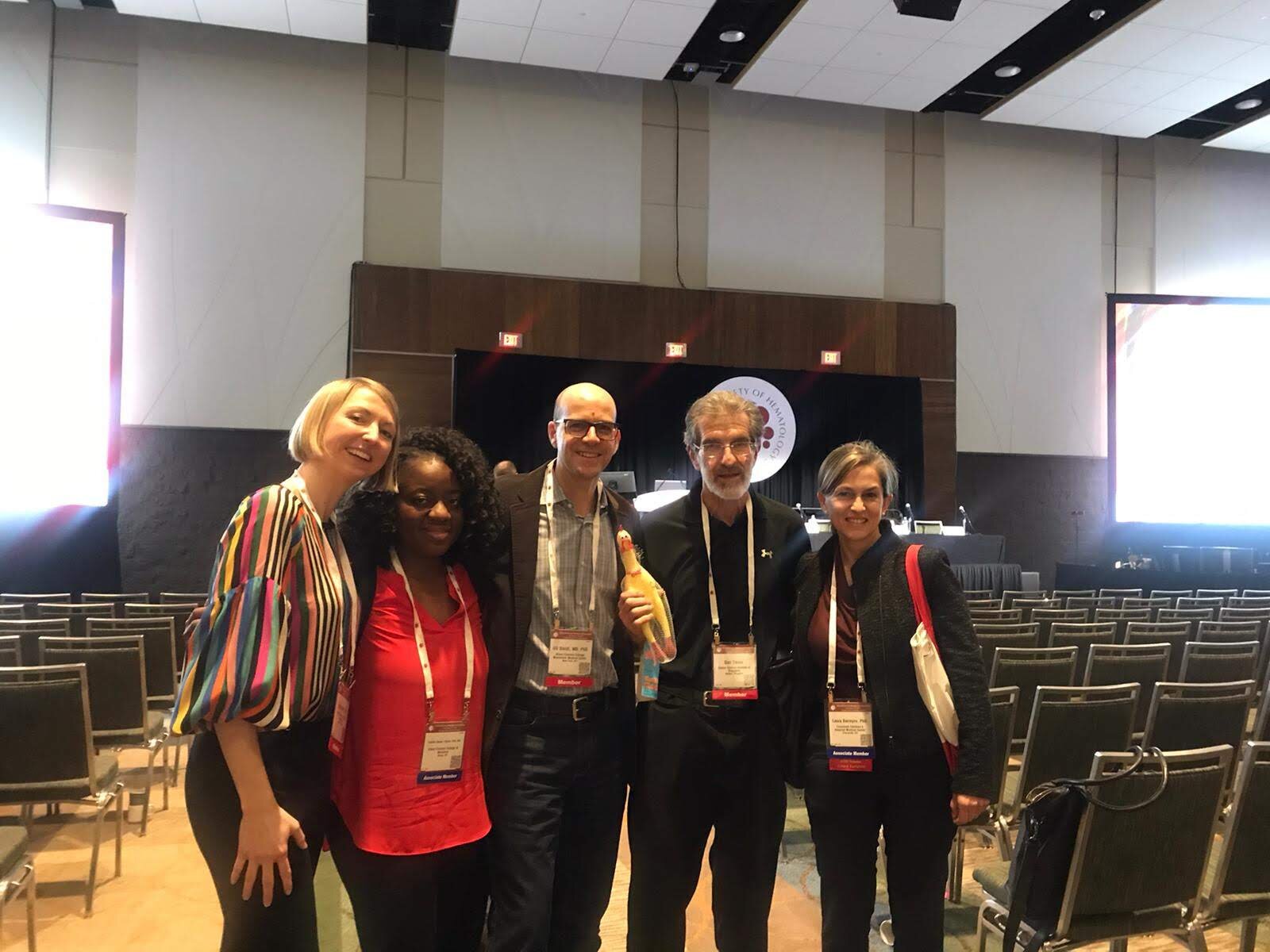
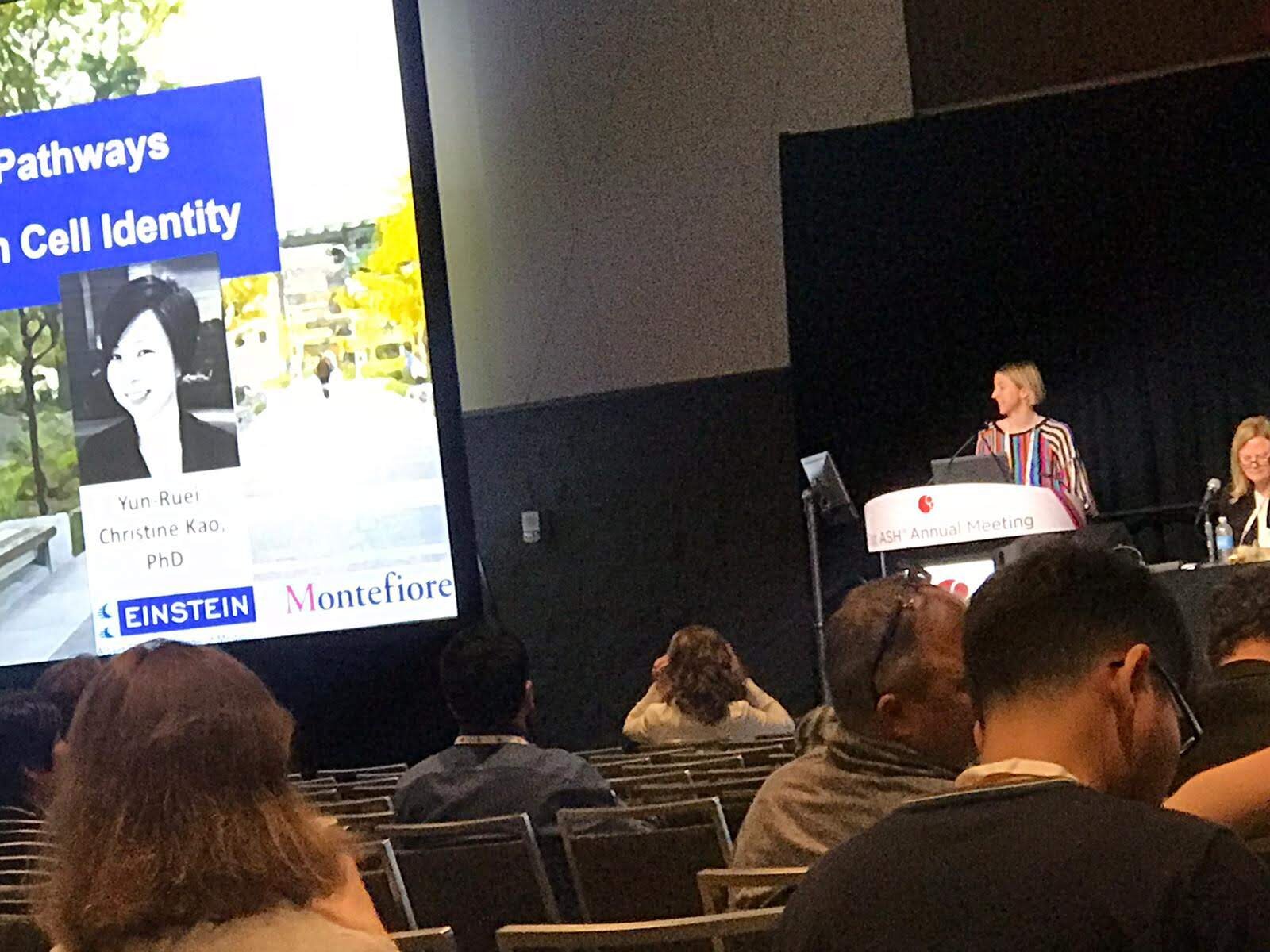
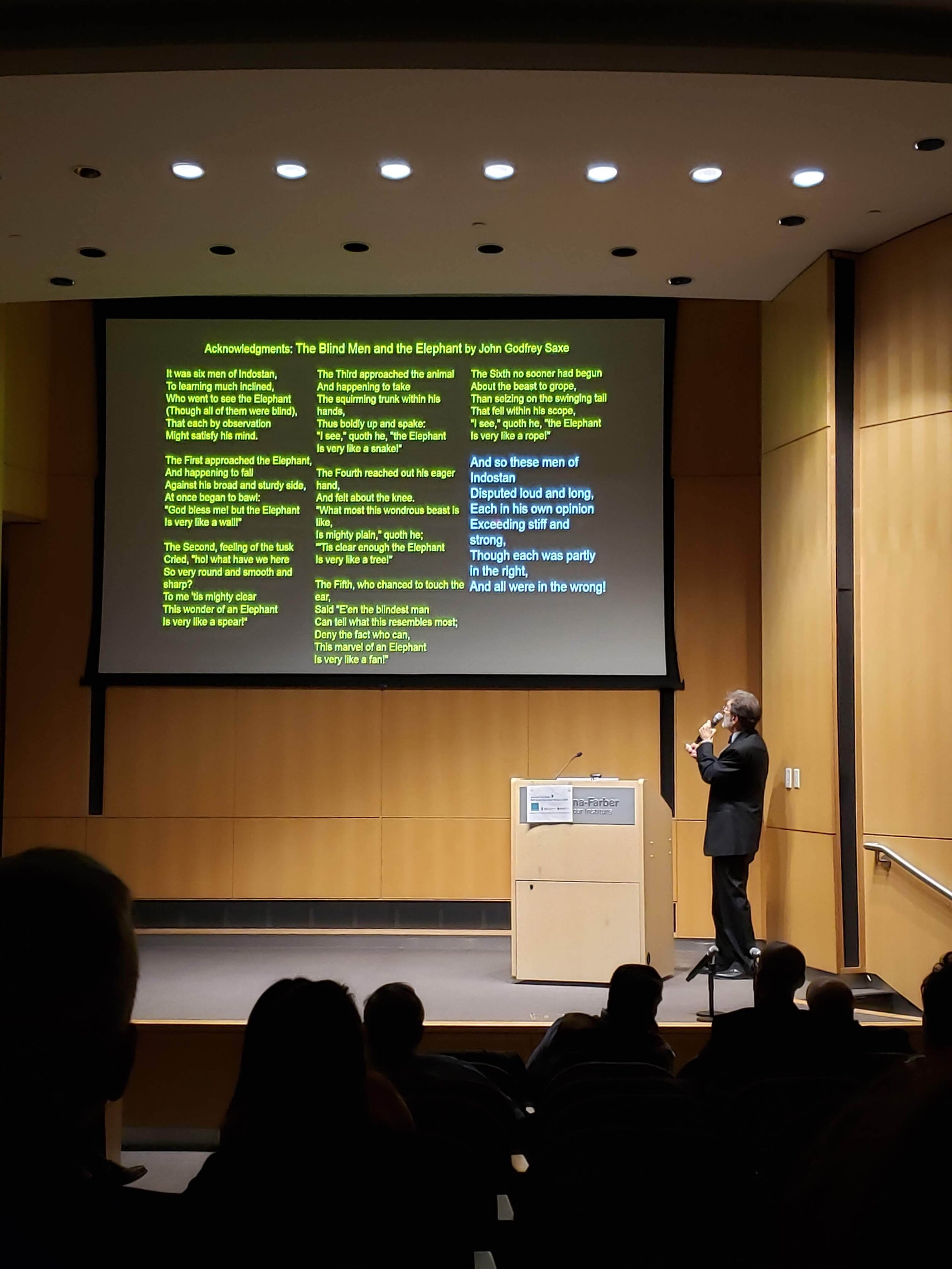
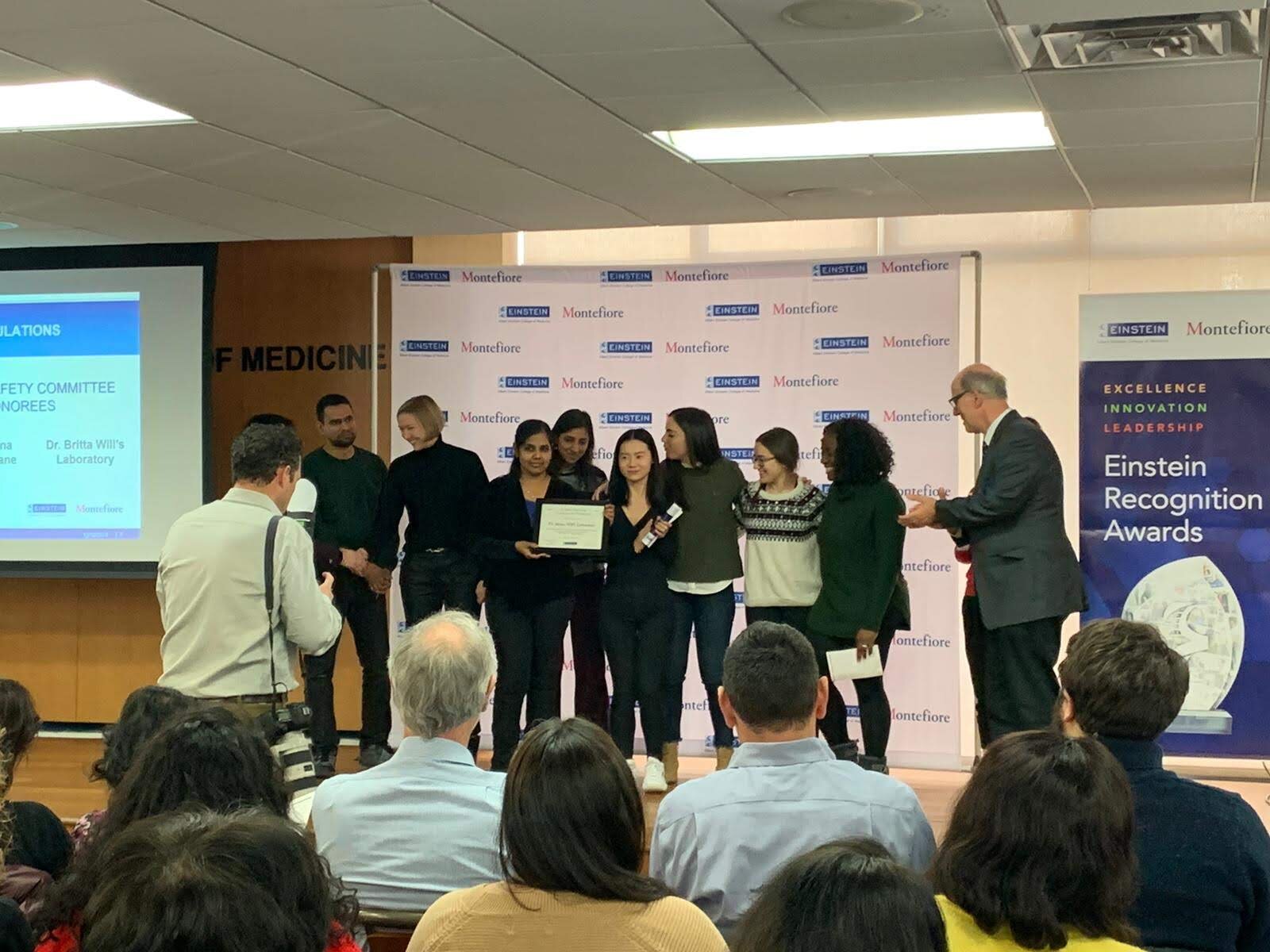
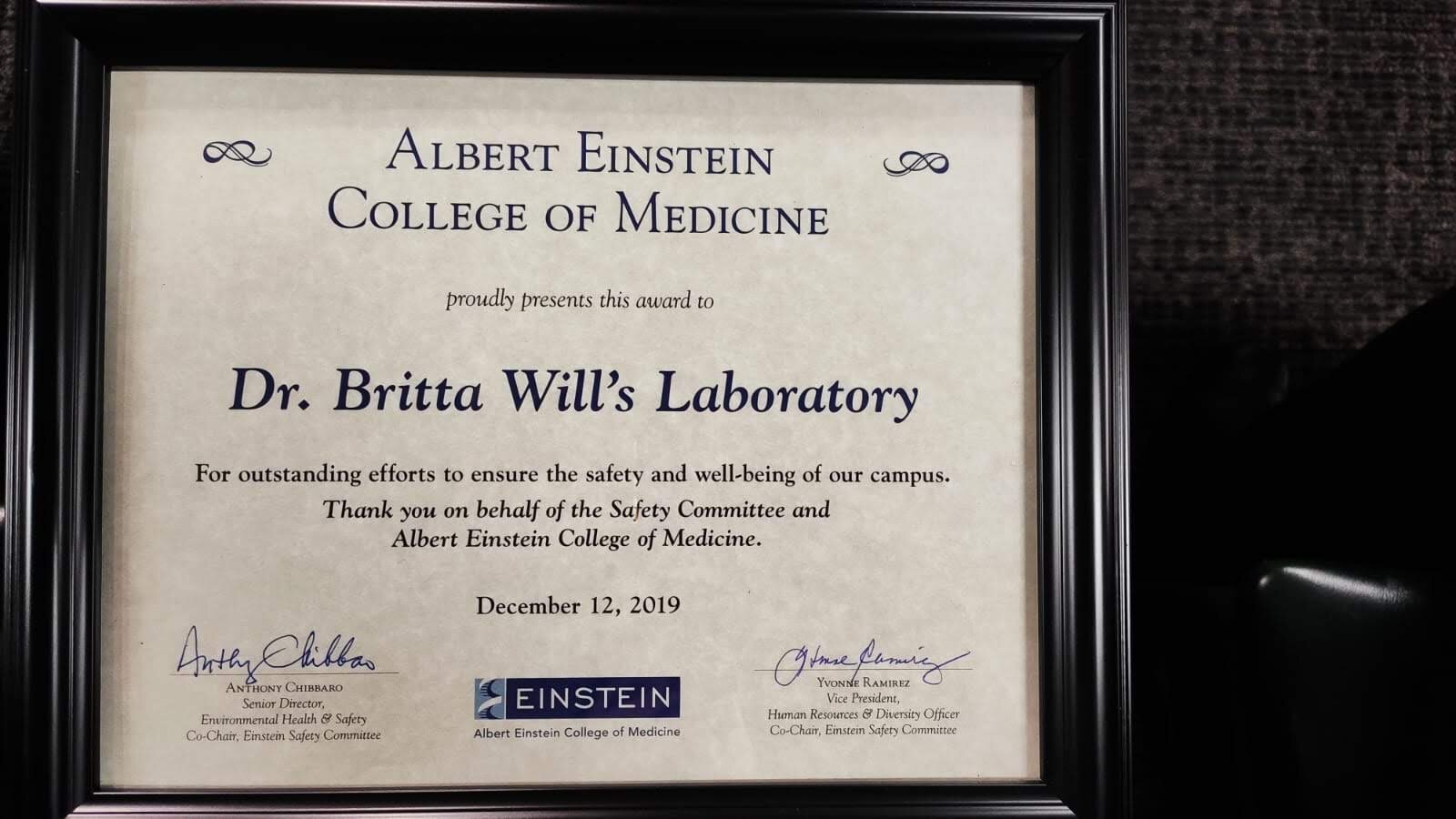
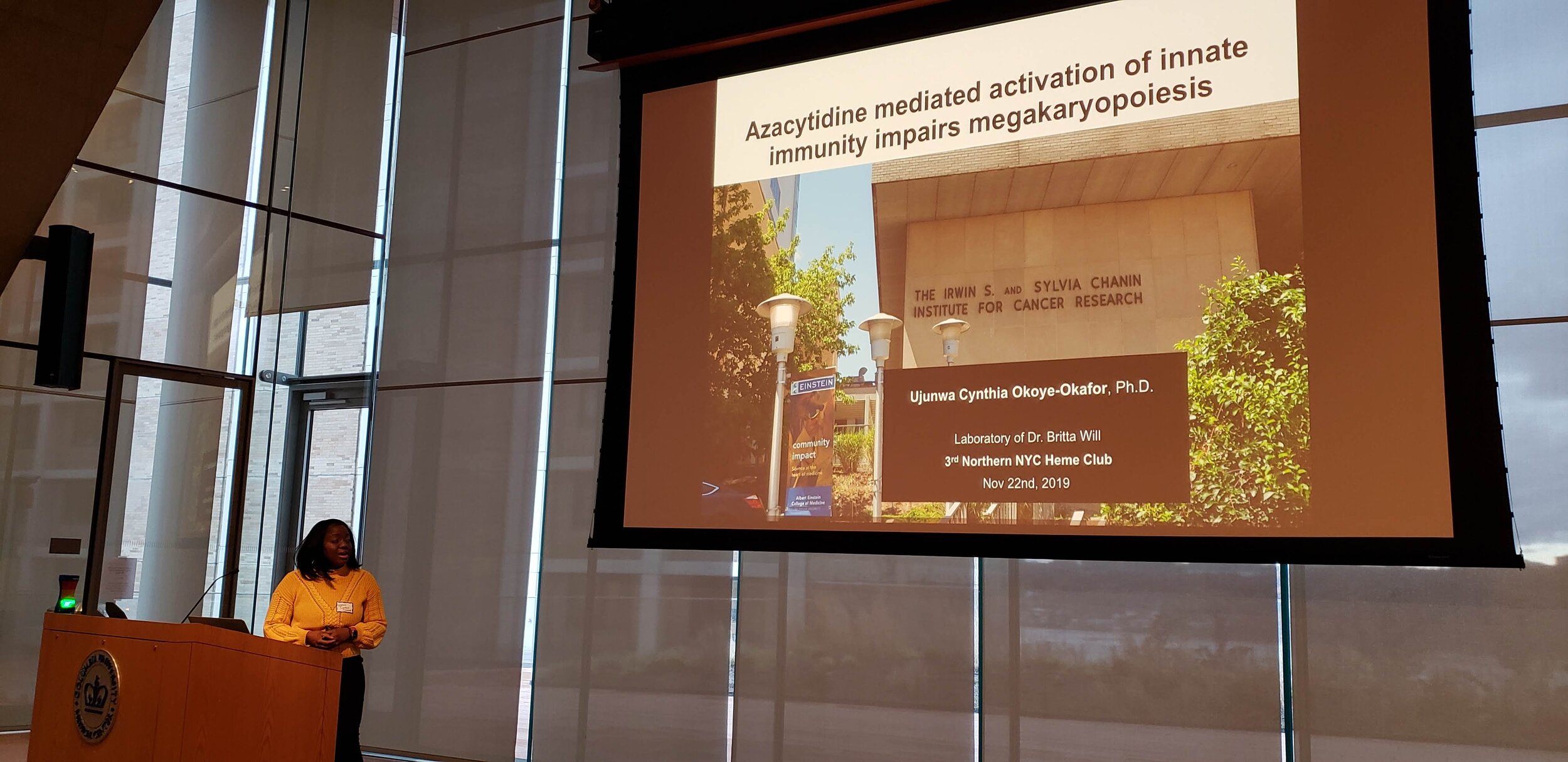
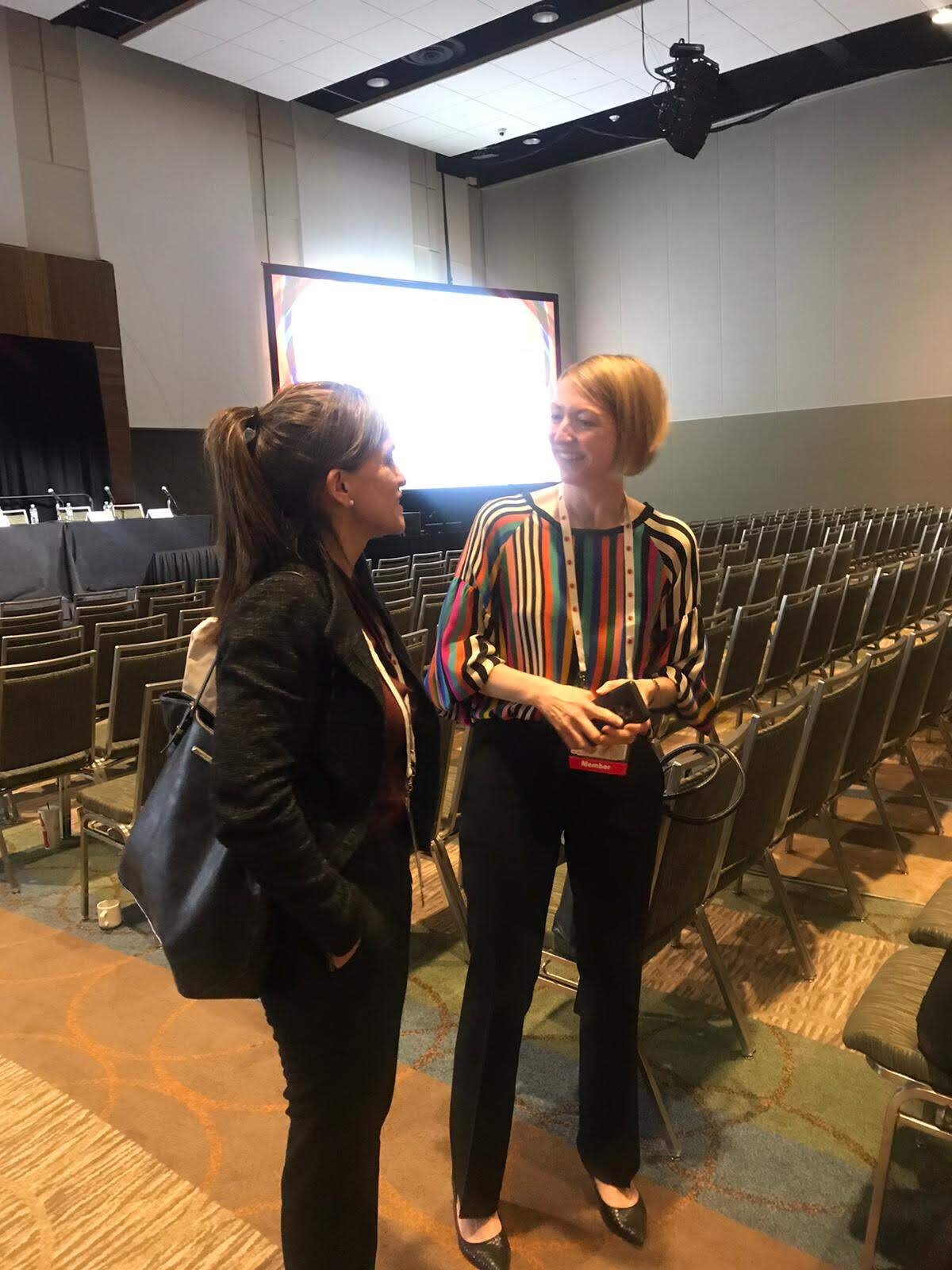
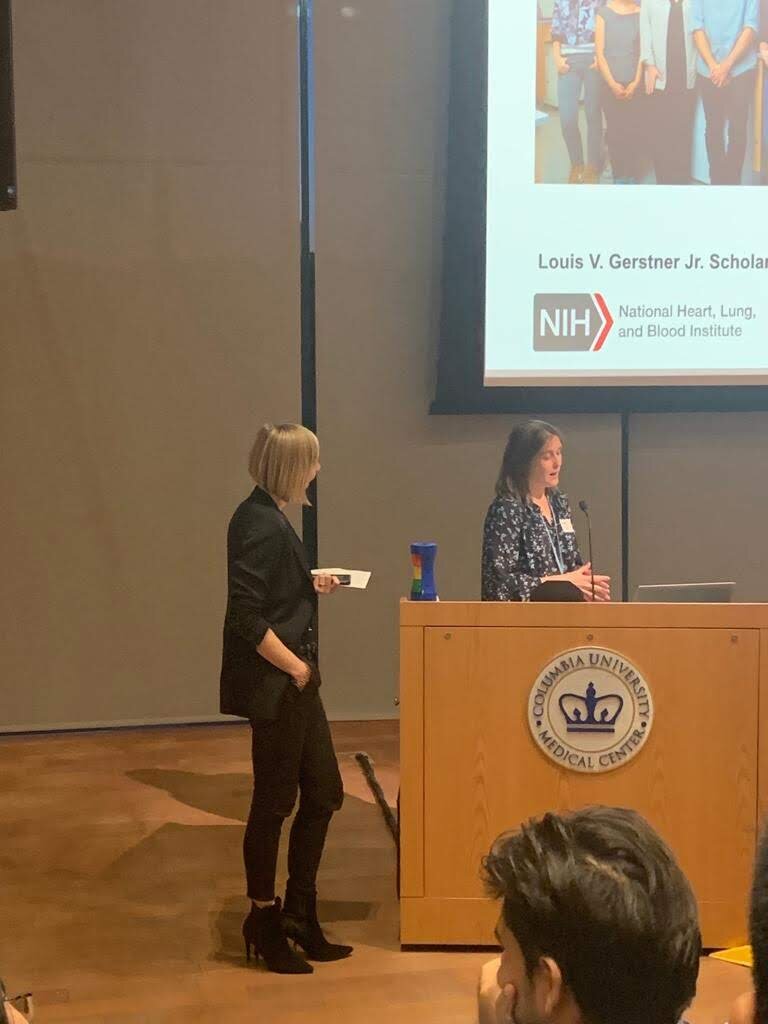
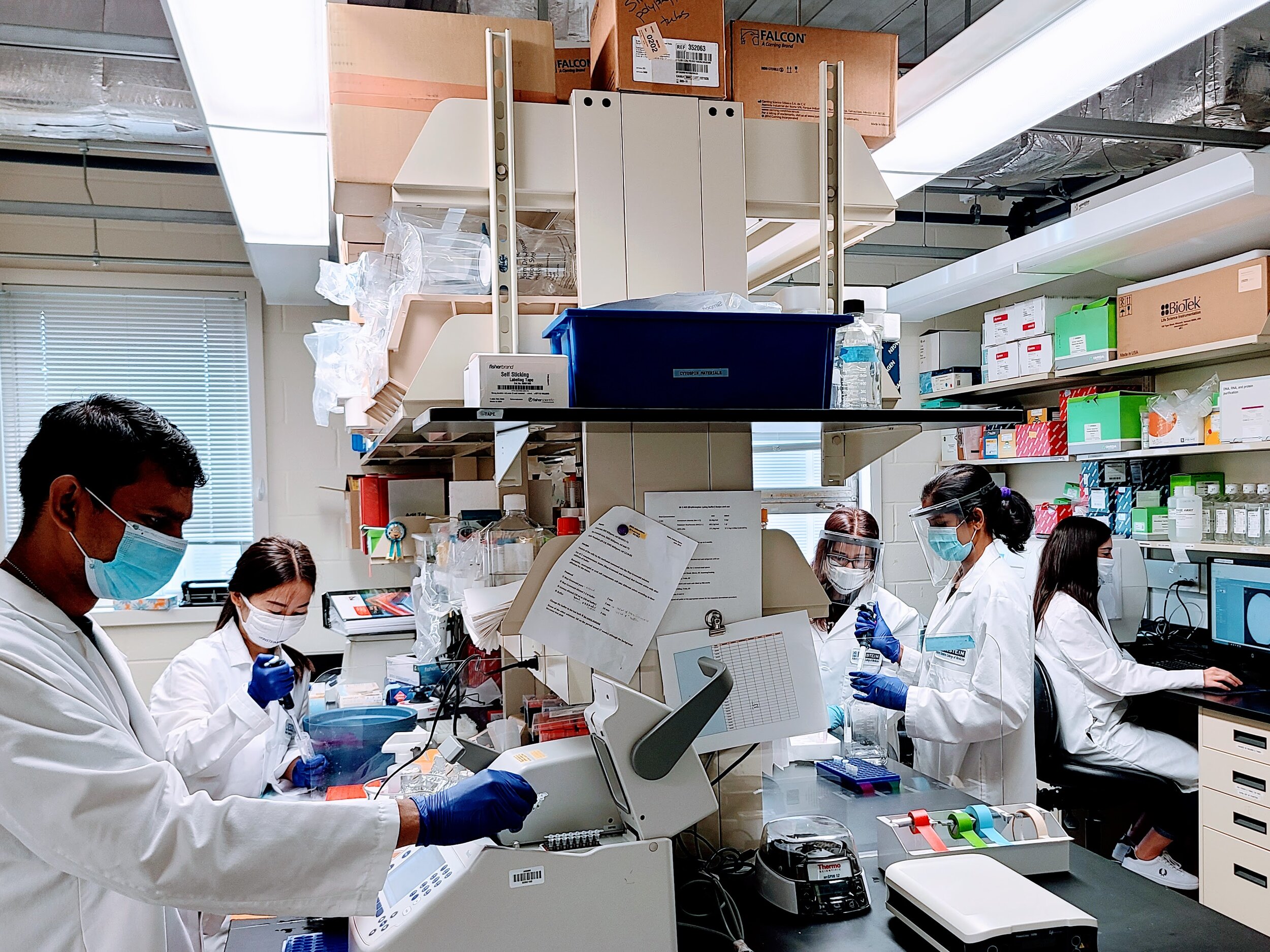
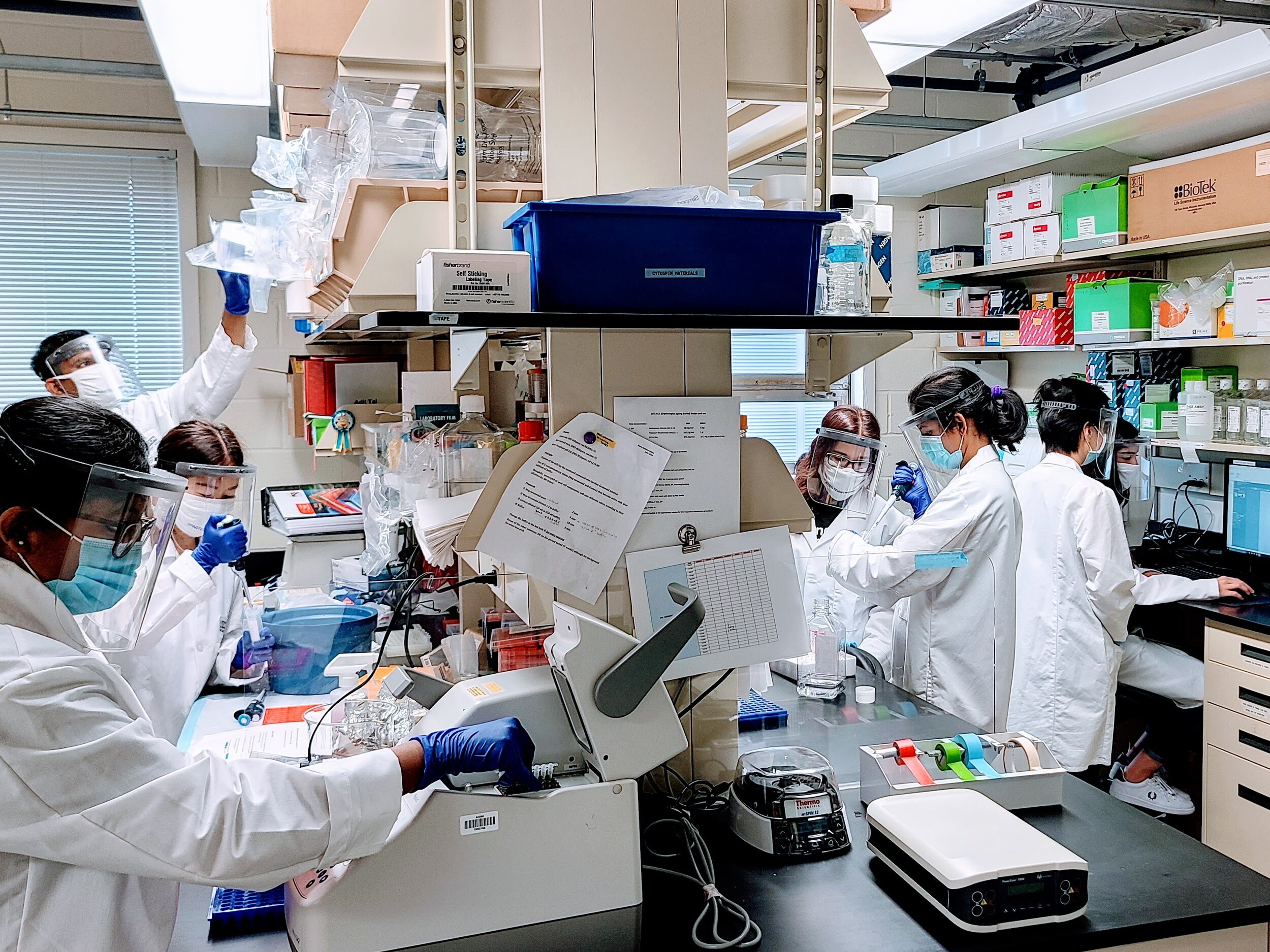
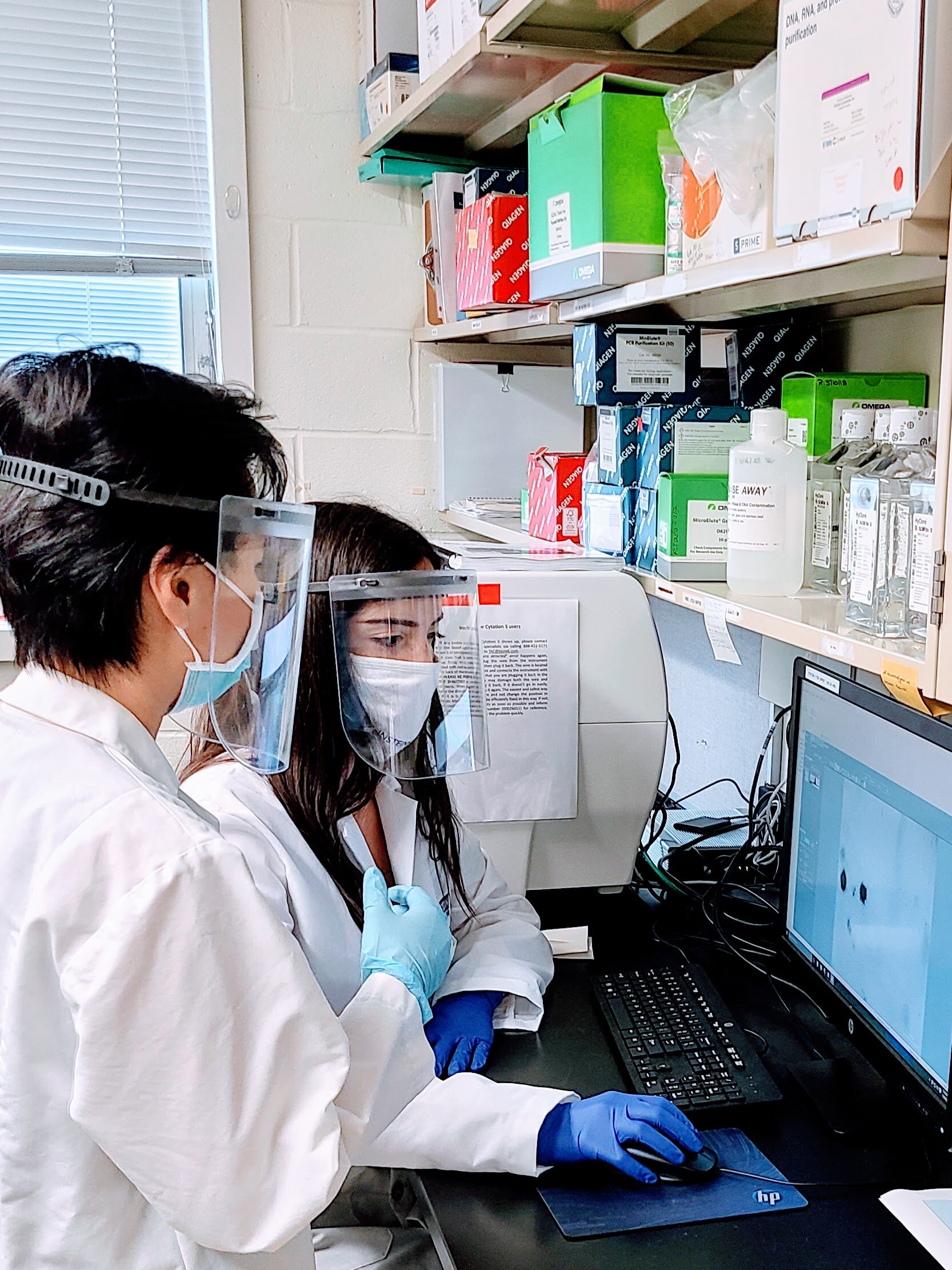
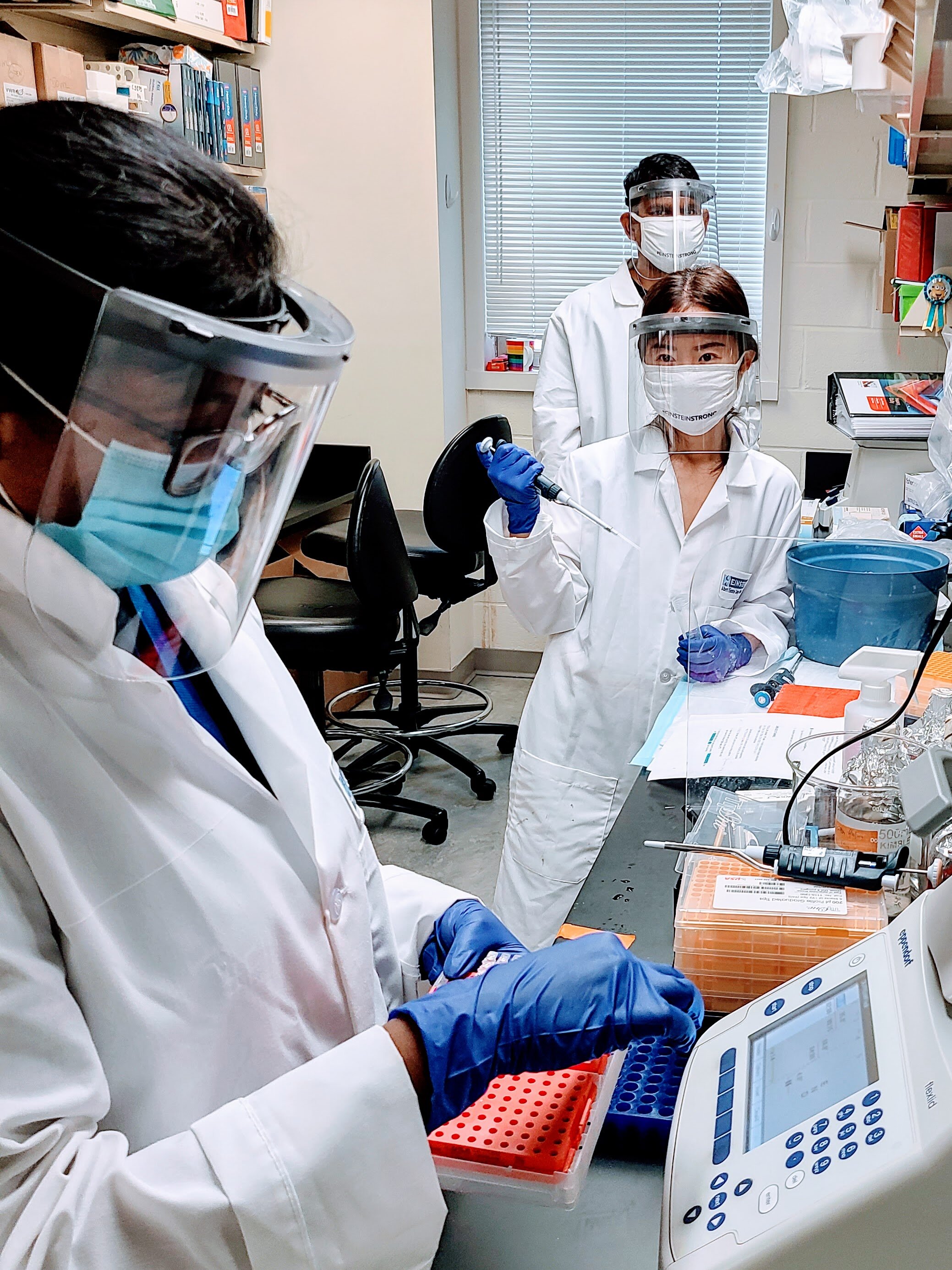
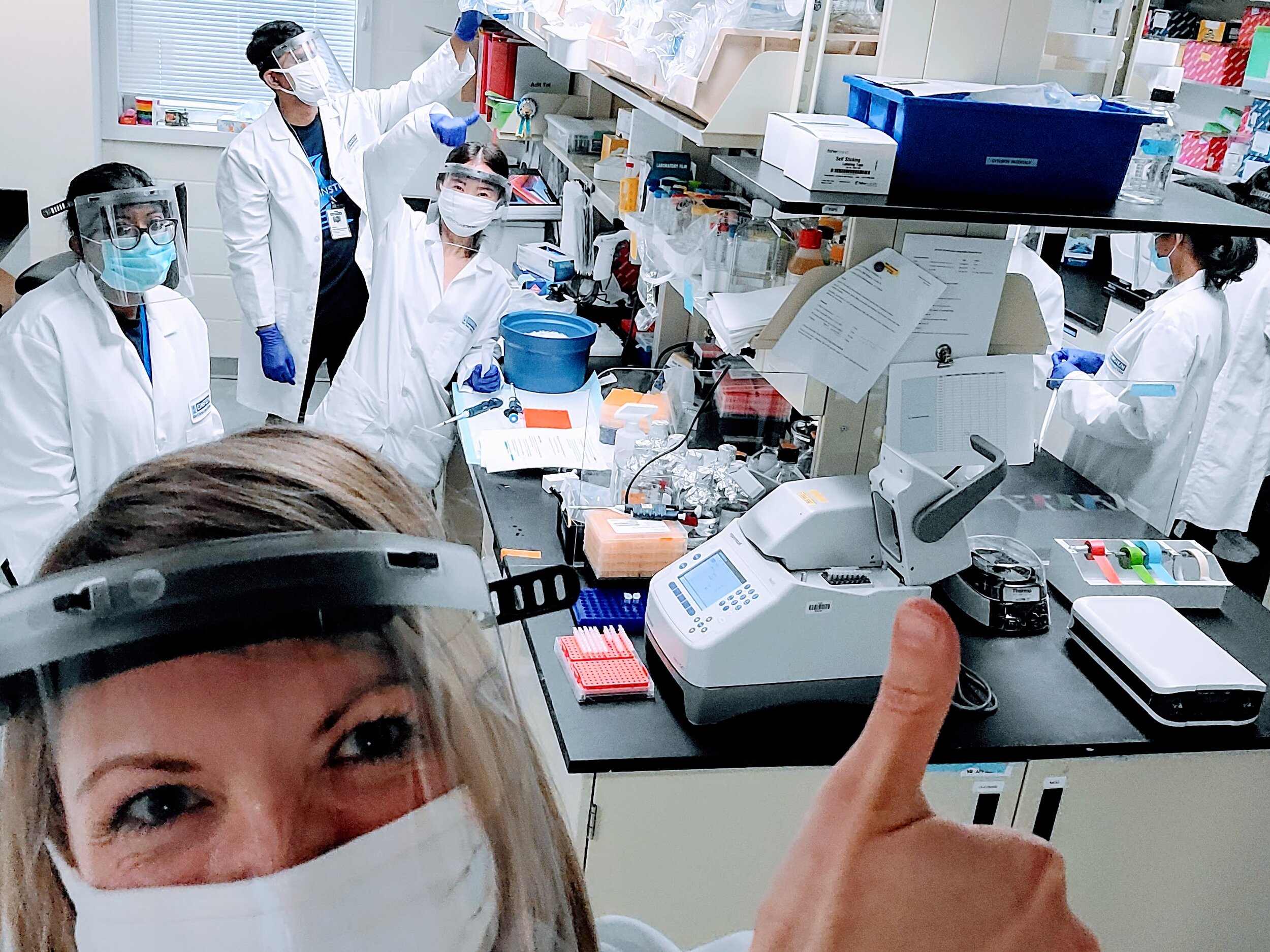
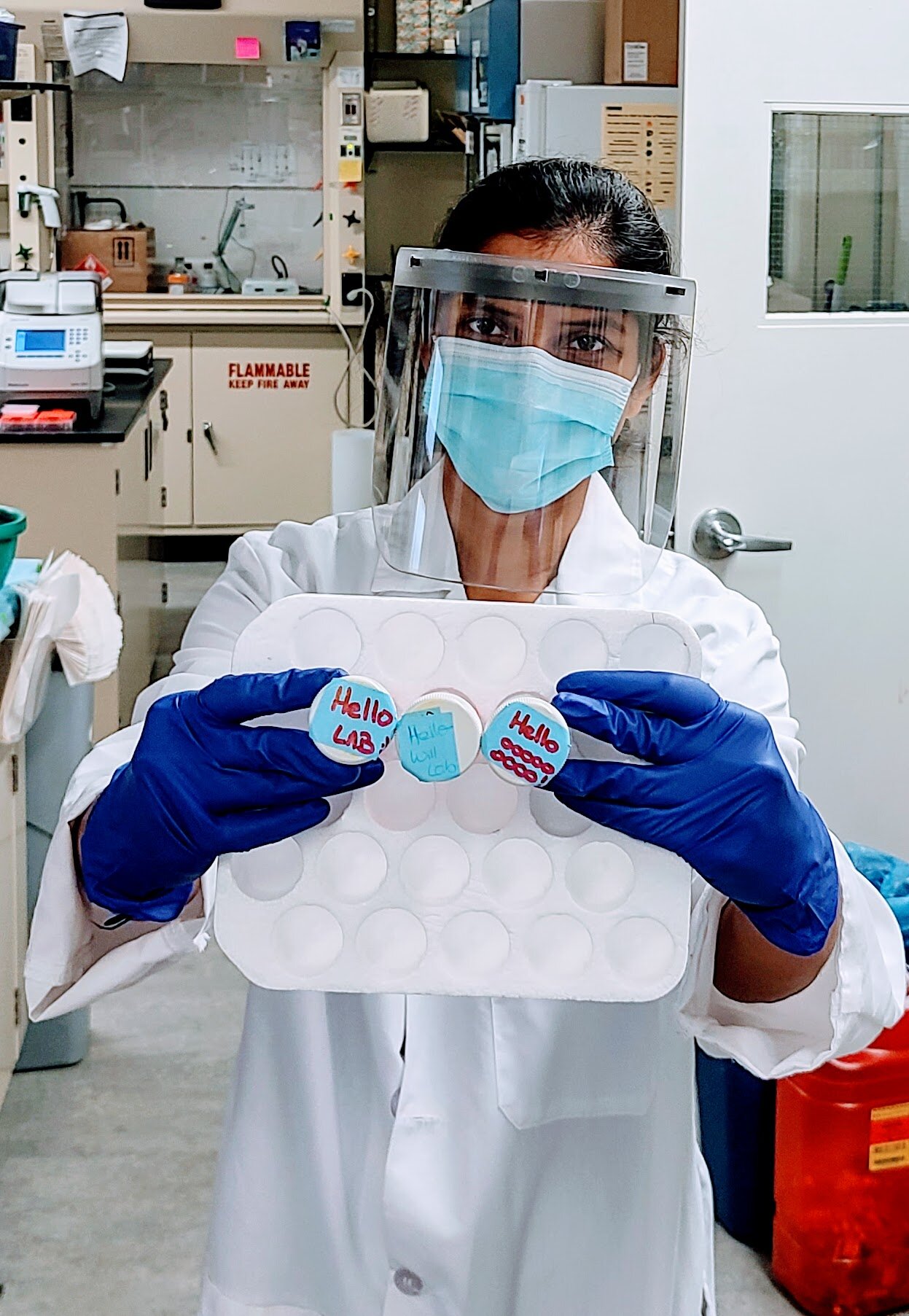
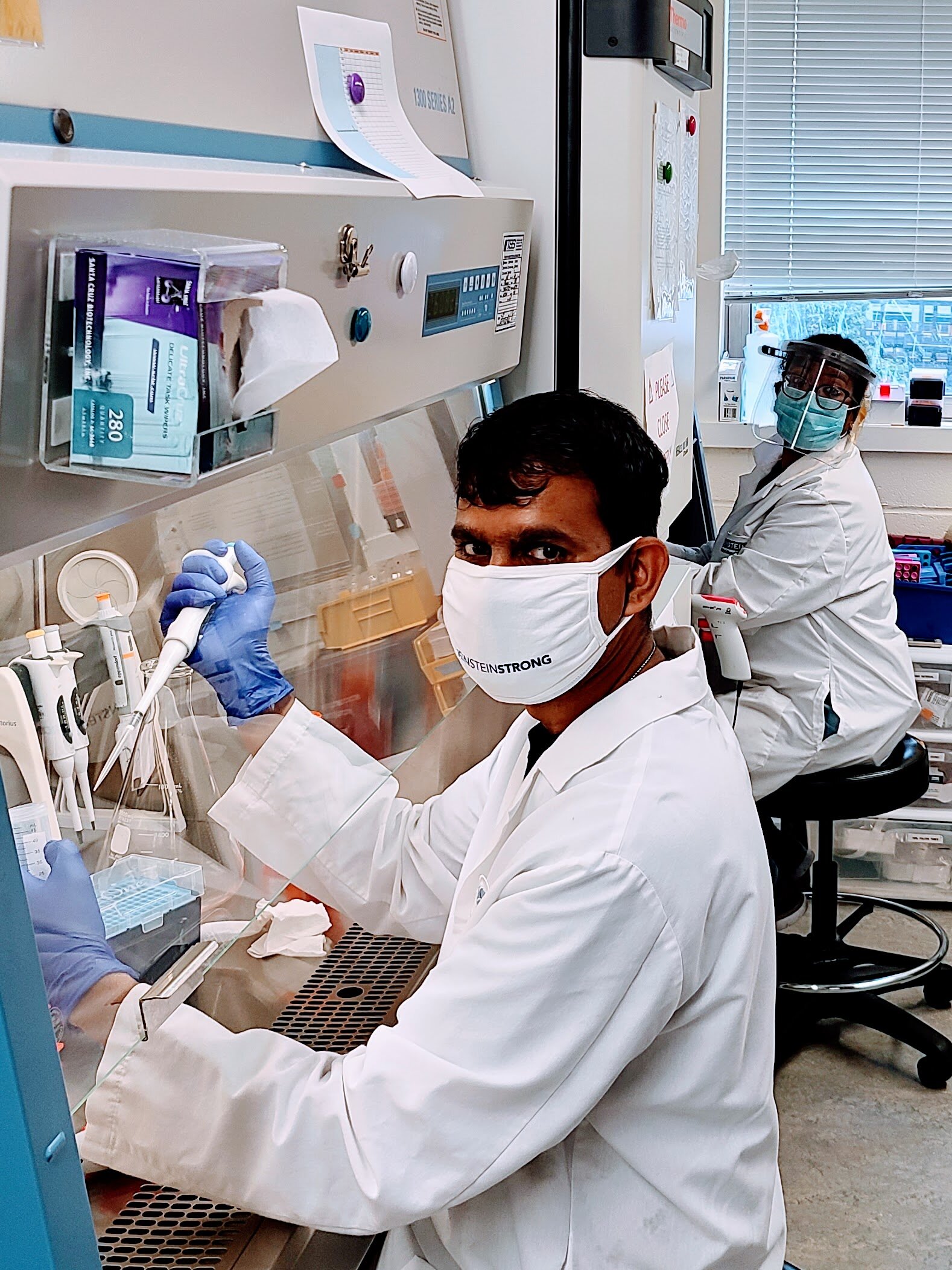
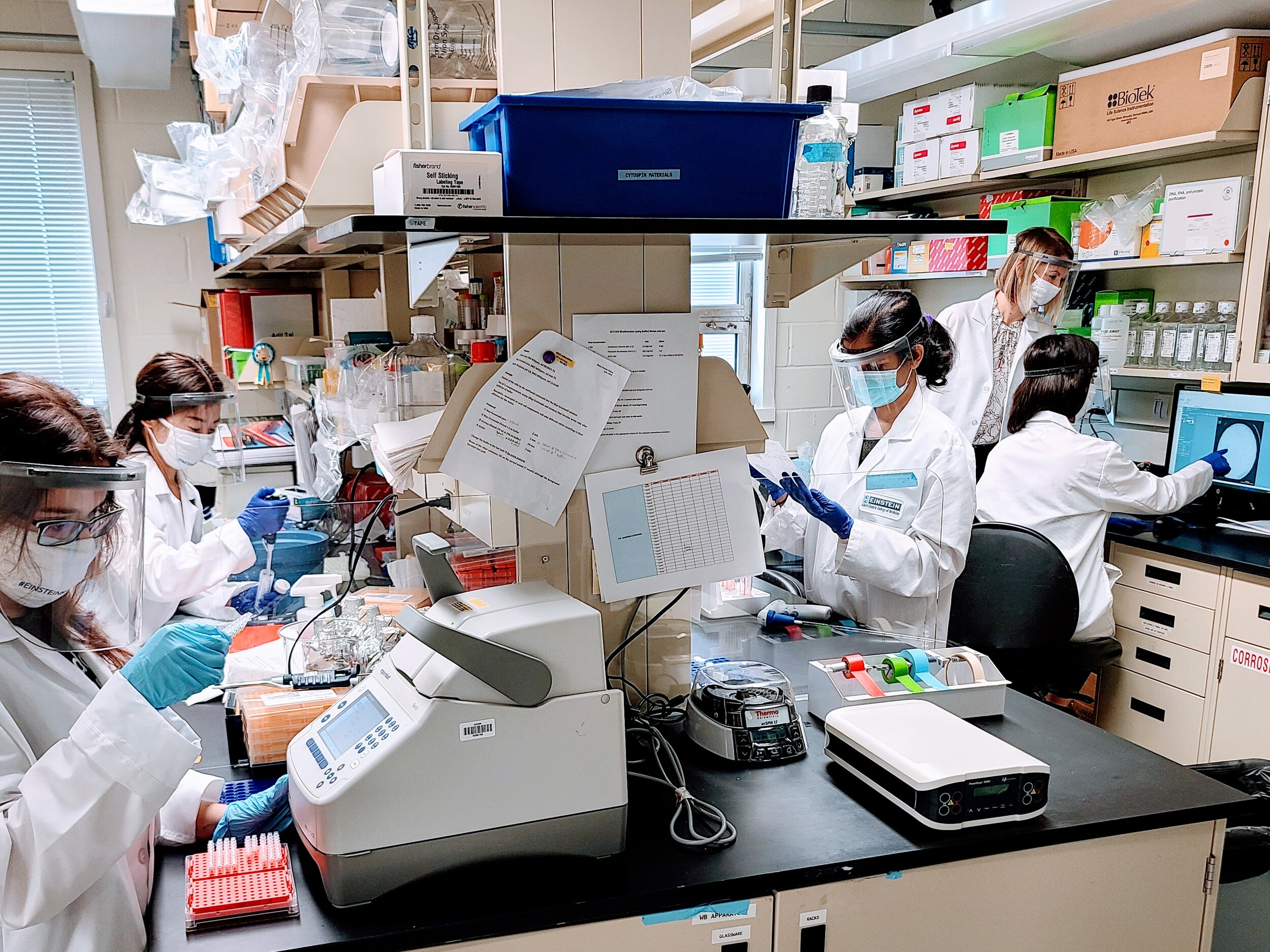
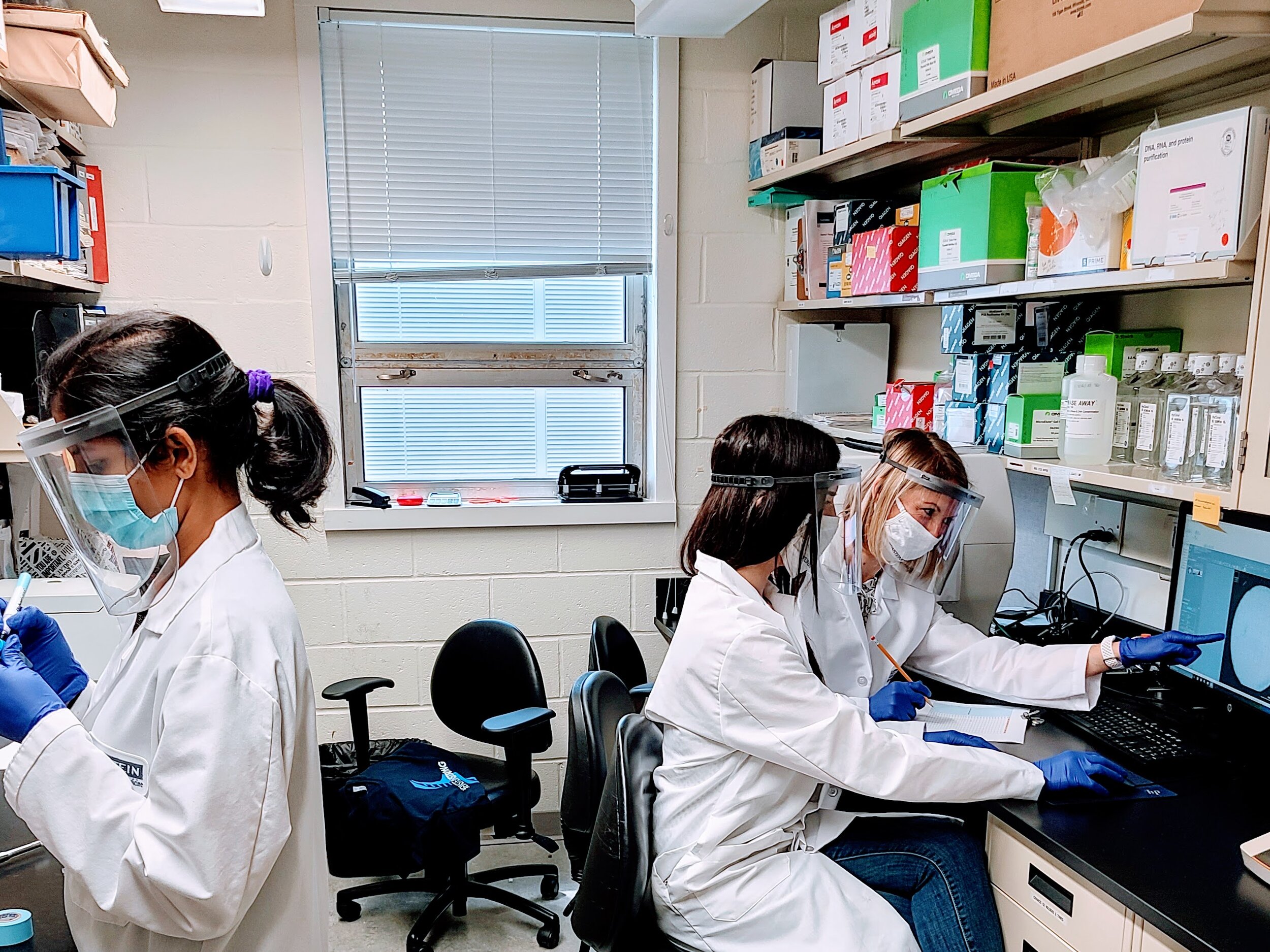
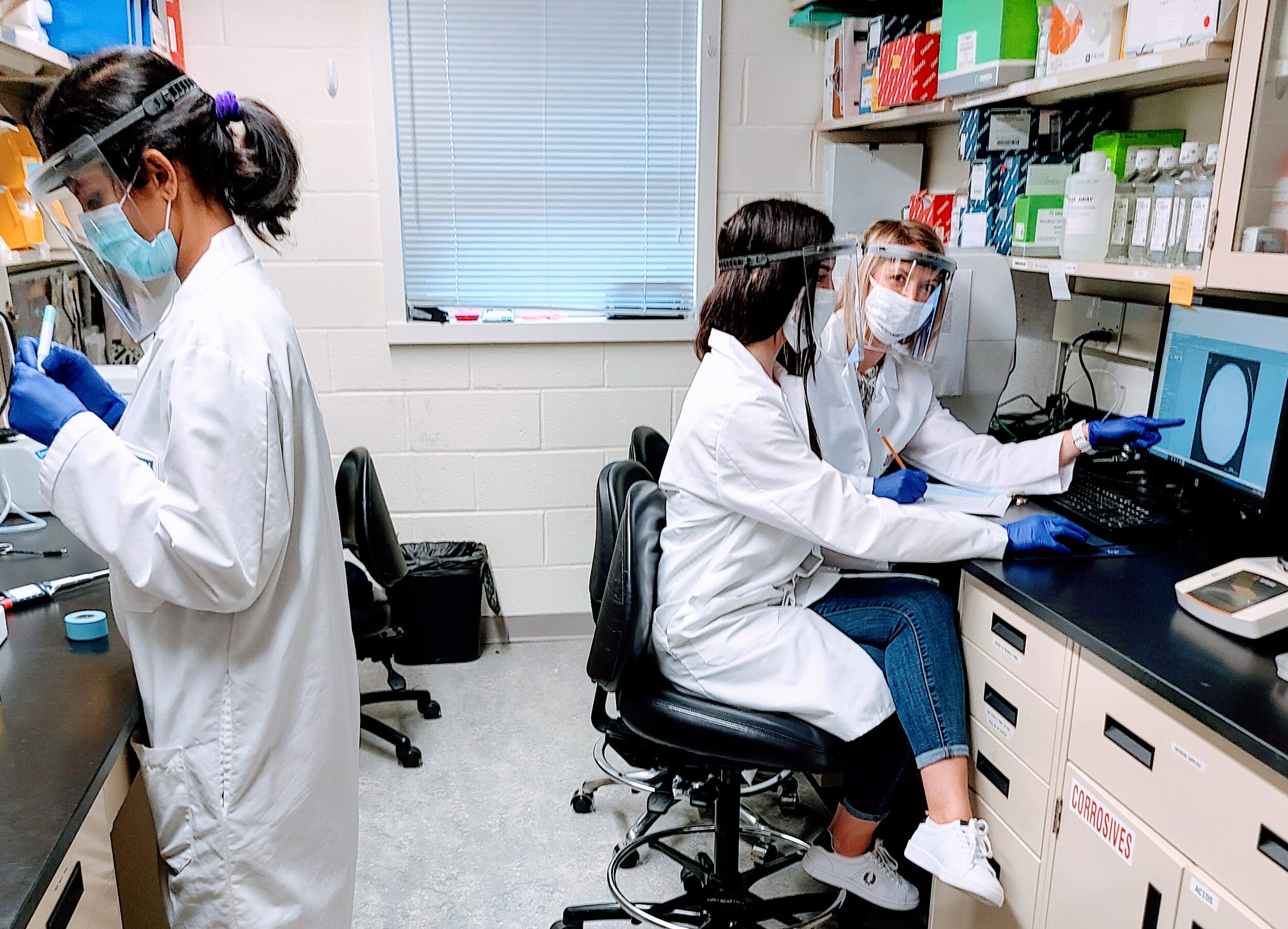
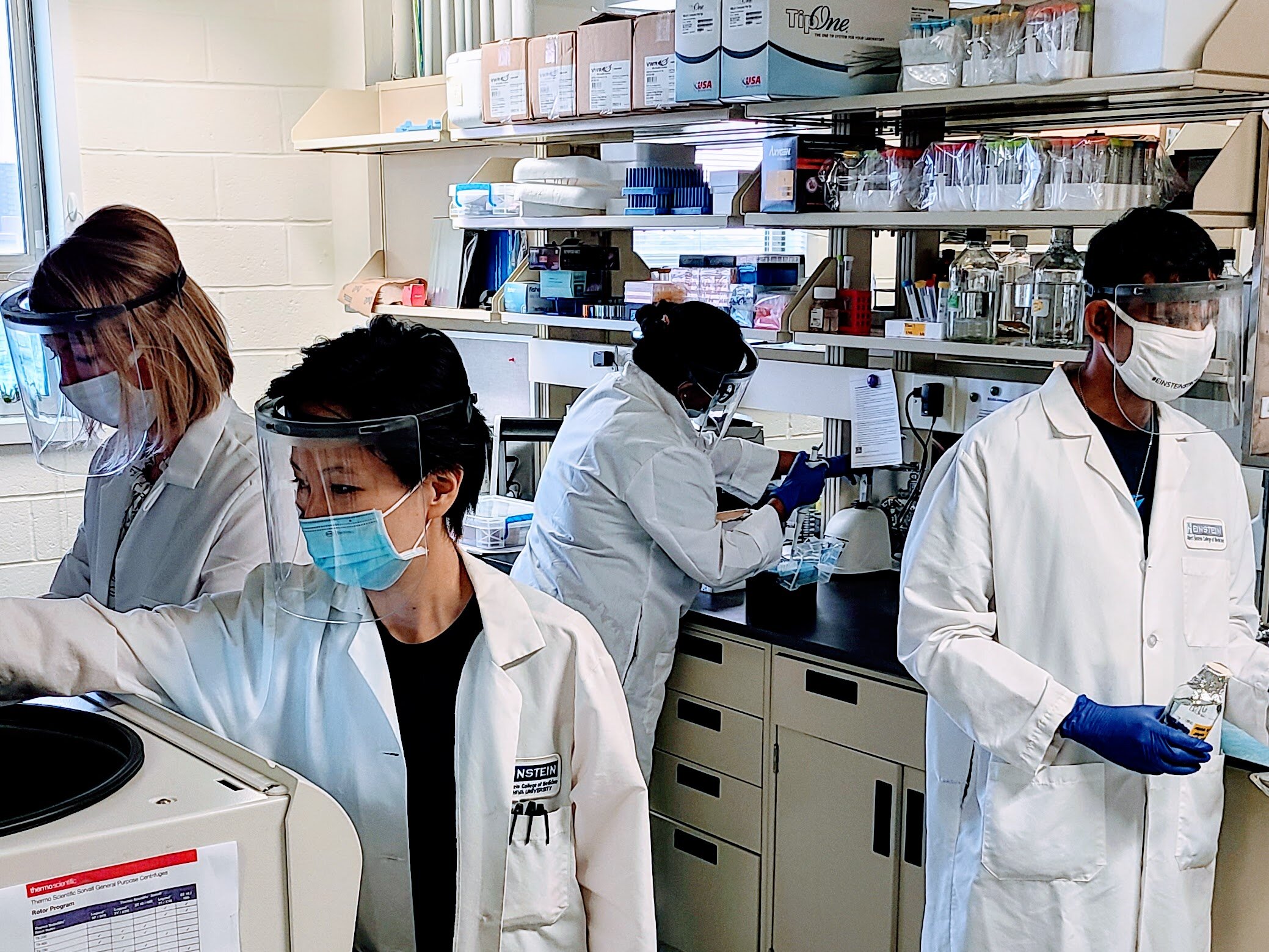
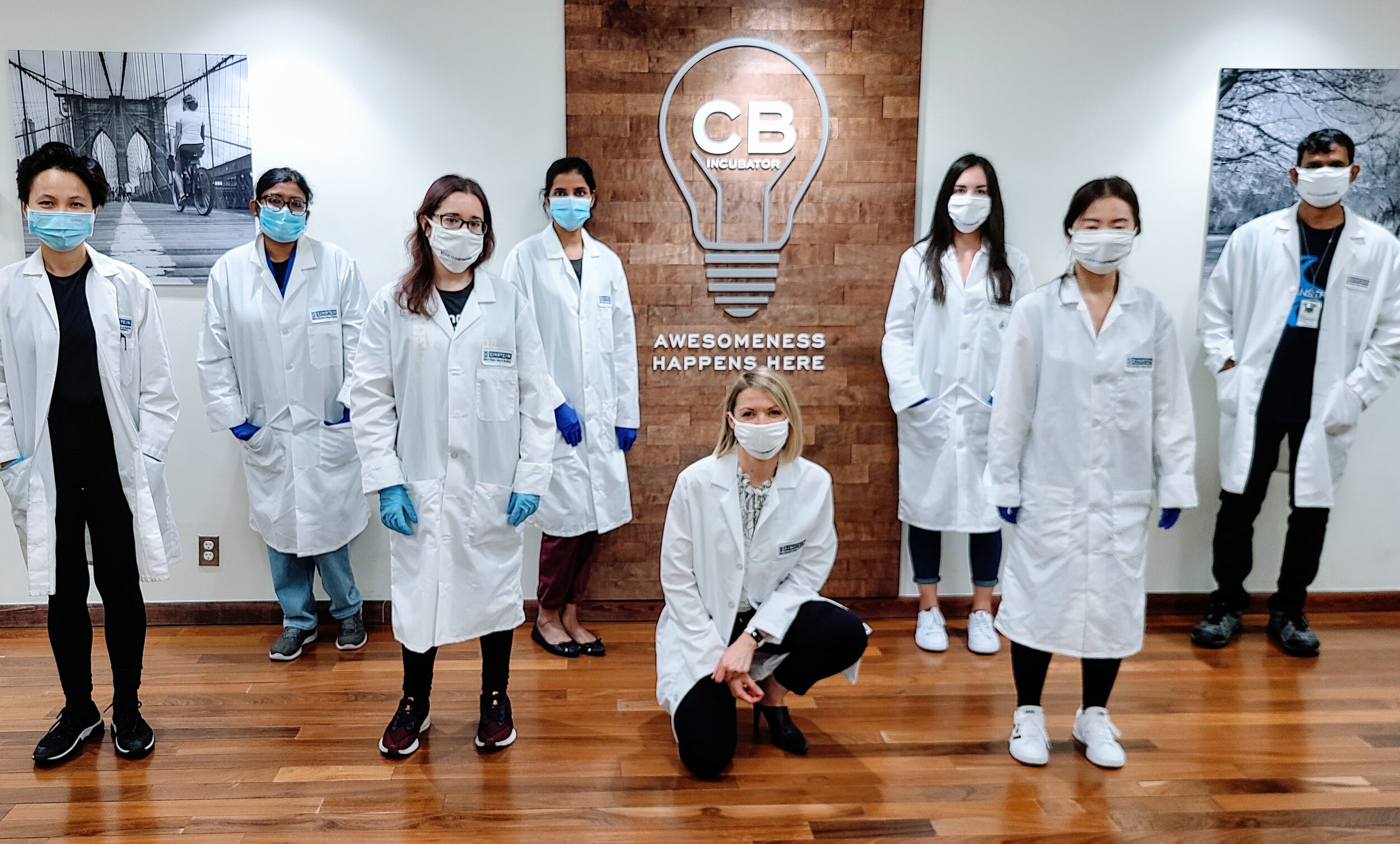
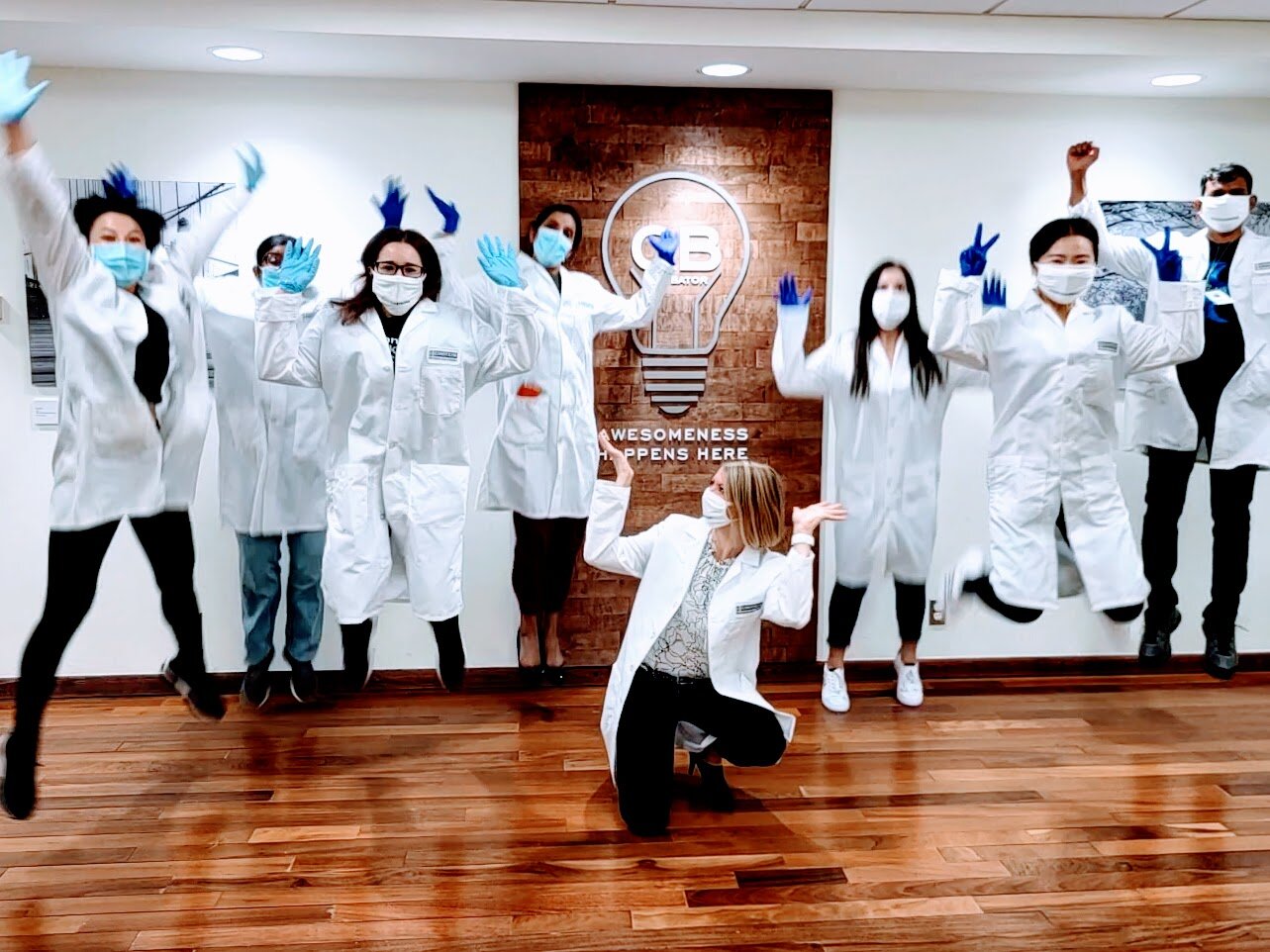
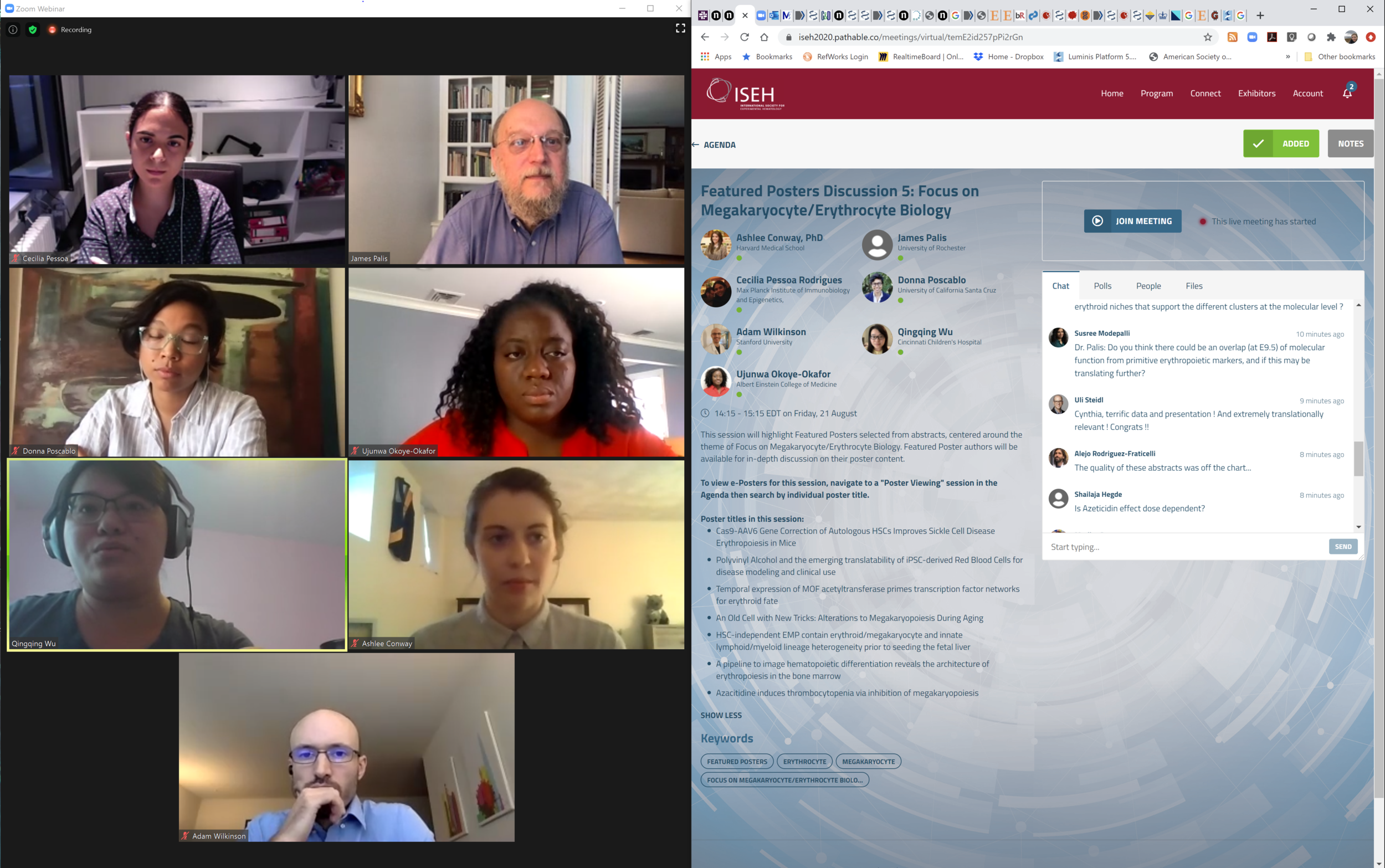
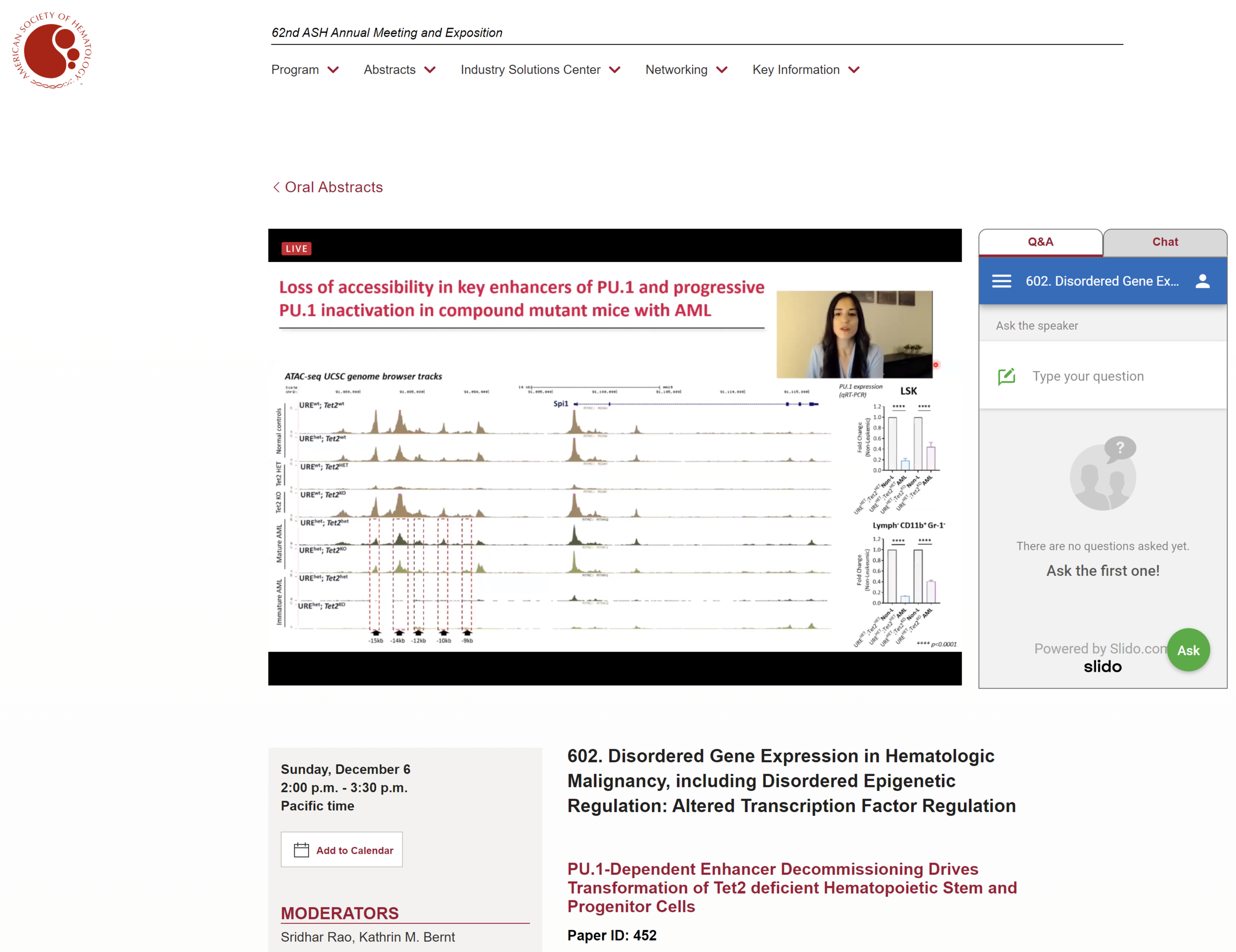
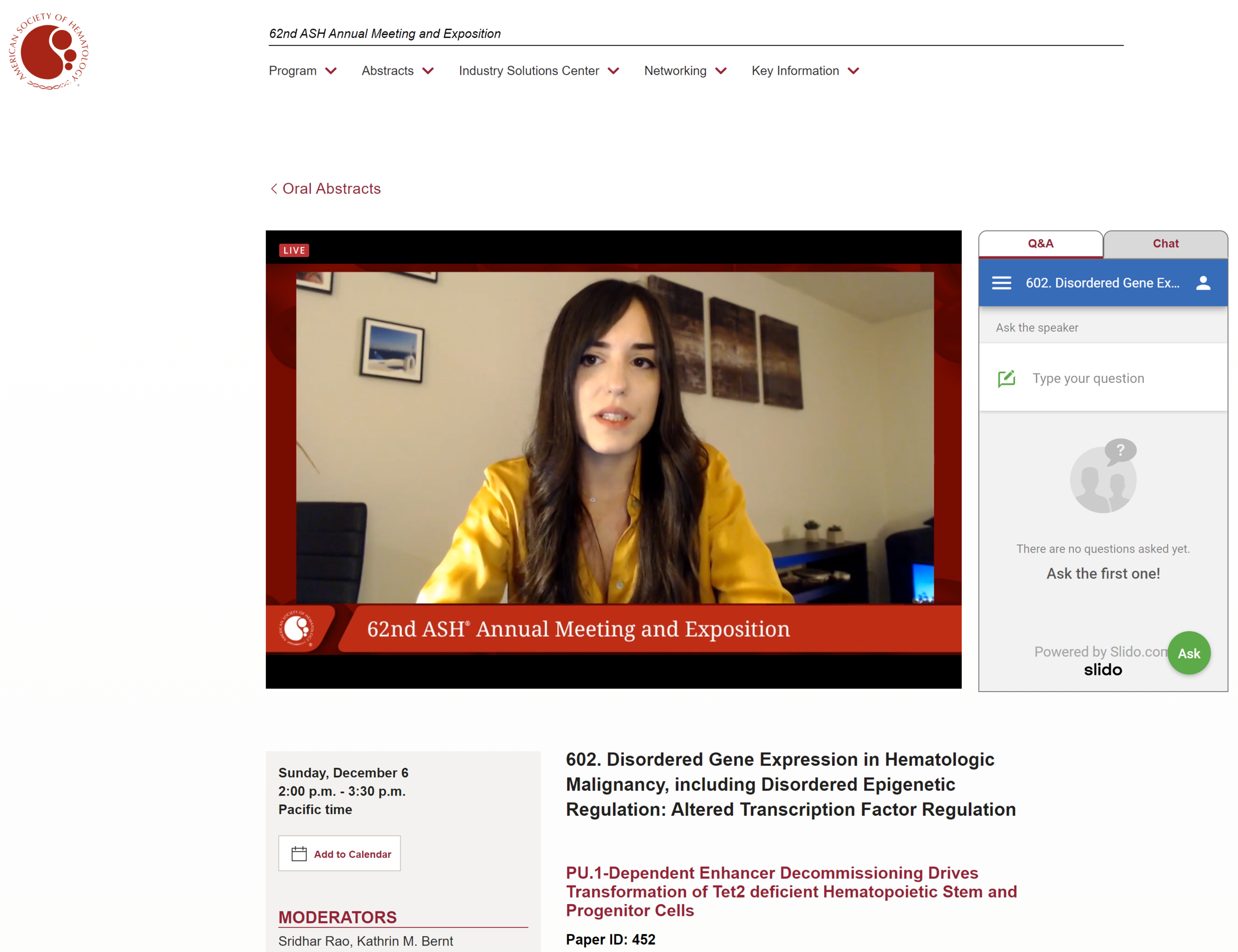
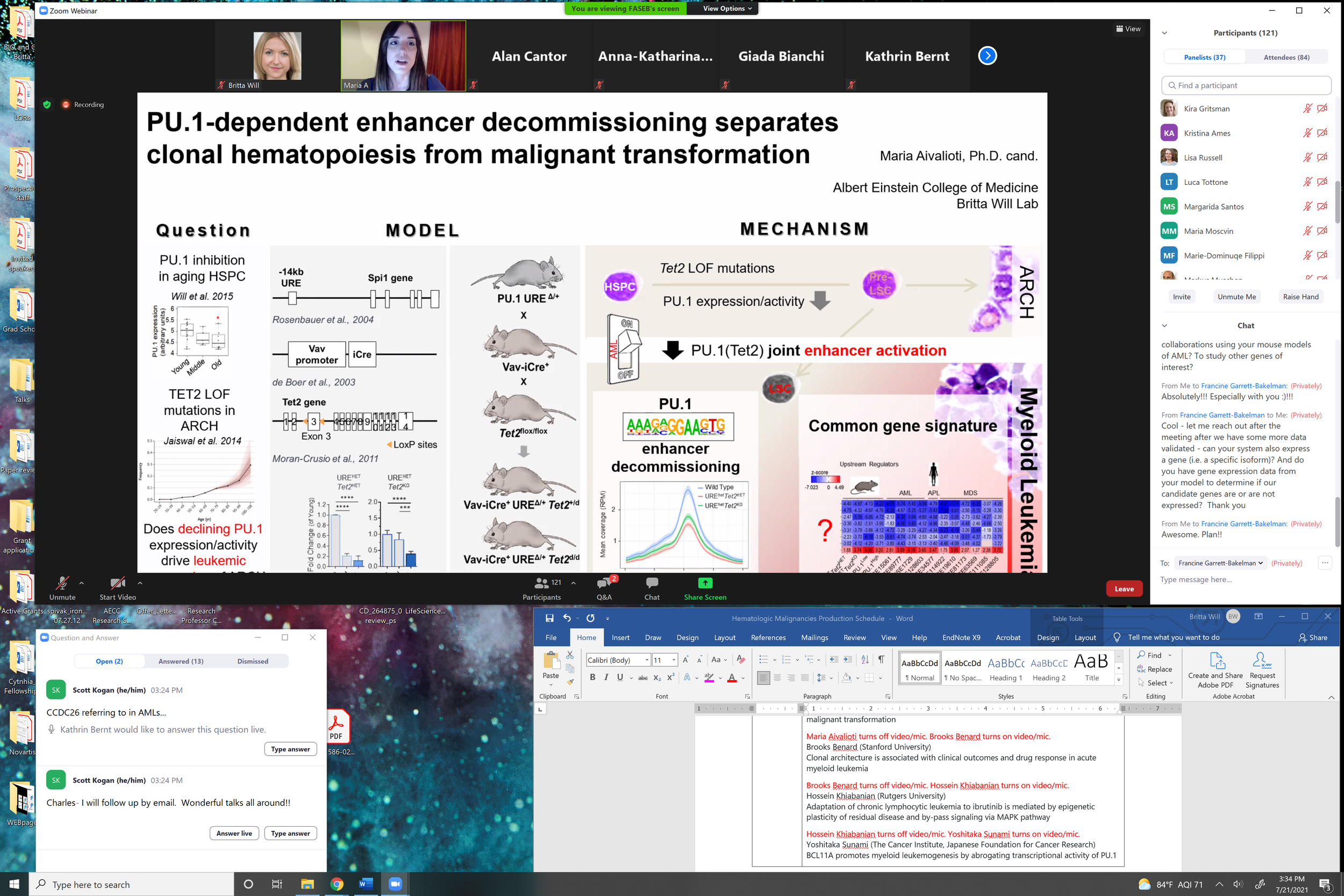
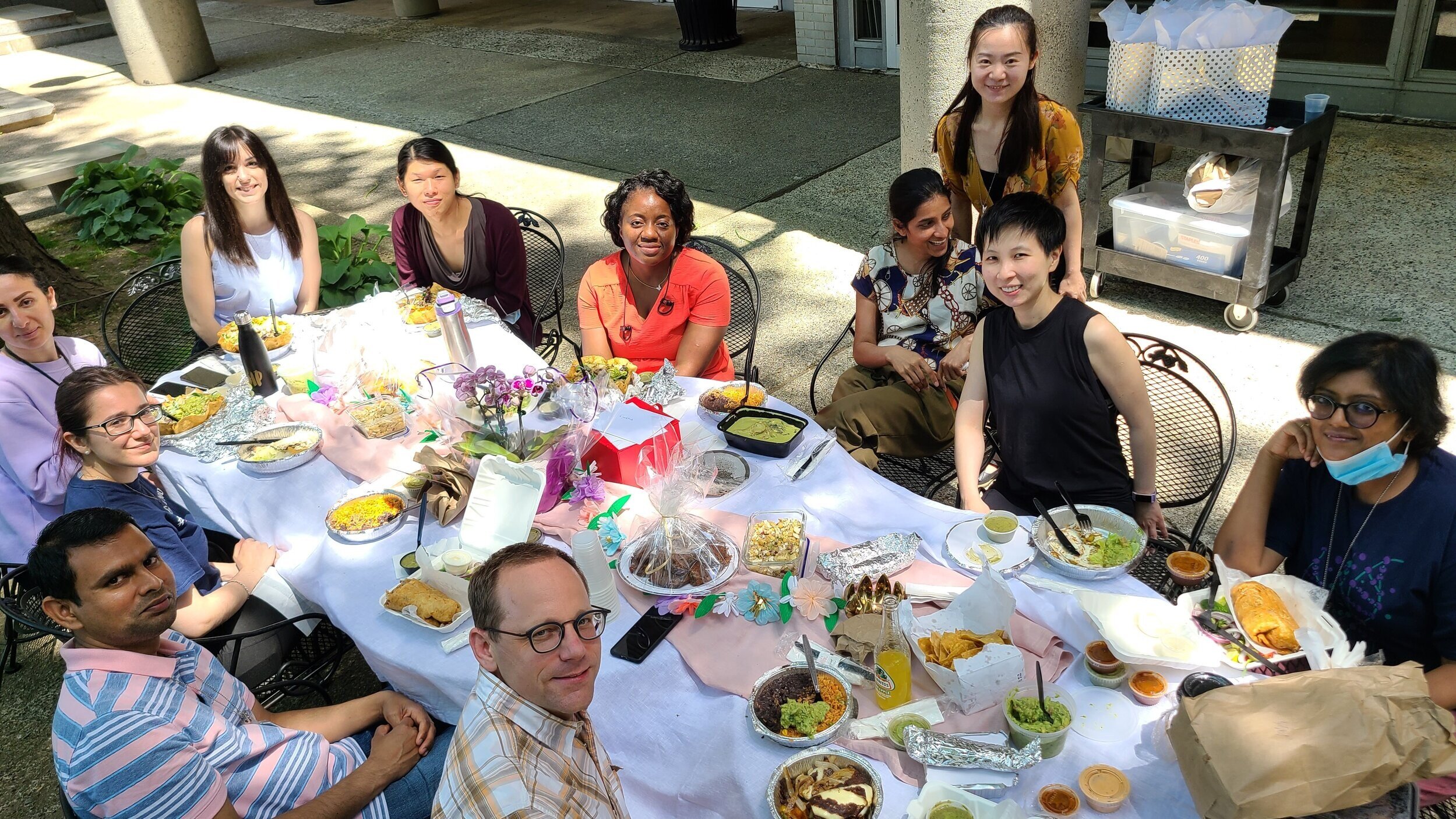
PUBLICATIONS
PUBLICATIONS
Chaperone-mediated autophagy sustains hematopoietic stem-cell function
Spearheaded by Dr. Shuxian Dong and in collaboration with Dr. Ana Maria Cuervo, we studied the role of chaperone-mediated autophagy (CMA), a selective form of lysosomal protein degradation, in sustaining HSC function in adult mice. We found that CMA is required for protein quality control in stem cells and for the upregulation of fatty acid metabolism upon HSC activation. We uncovered that CMA activity decreases in HSC with age and show that genetic or pharmacological activation of CMA can restore the functionality of old mouse and human HSCs. Together, our findings provide mechanistic insights into a role for CMA in sustaining quality control, appropriate energetics and overall long-term HSC function. Our work suggests that CMA may be a promising therapeutic target for enhancing HSC function in conditions such as ageing or stem-cell transplantation. (Dong et al., Nature 2021)
Comment by Drs. Nick van Gastel and David T. Scadden in Cell Research
Thrombopoietin receptor–independent stimulation of hematopoietic stem cells by eltrombopag
In this new study, we characterized the mechansim of action of eltrombopag on stimulating hematopoietic stem cell function and uncovered a key role of the amount of readily accessible intracellular iron in instructing hematopoietic stem cell self-renewal (Kao et al., STM 2018).
Minimal PU.1 reduction induces a preleukemic state and promotes development of acute myeloid leukemia
Hematopoietic stem cell aging is associated with wide-ranging gene expression alterations. Here we demonstrated that even minimal dose alterations of a key hematopoietic transcription factor, PU.1, predisposes stem cells to malignant transformation (Will et al., Nat. Med. 2015).
Satb1 regulates the self-renewal of hematopoietic stem cells by promoting quiescence and repressing differentiation commitment
Here, we identified the transcription factor and chromatin remodeler Satb1 as a critical regulator of HSC fate, and provide insight into how hematopoietic stem cells coordinate the regulation of opposing cellular mechanisms such as self-renewal and differentiation commitment upon cell division (Will et al., Nat Immunol 2013).
Stem and progenitor cells in myelodysplastic syndromes show aberrant stage-specific expansion and harbor genetic and epigenetic alterations
Myelodysplastic syndrome (MDS) is an ageing-associated hematologic malignancy, largely lacking curative therapies. In this study we demonstrated that patient-derived aberrant stem and progenitor cells contain epigenetic and genetic alterations which may be exploited for therapeutic targeting (Will et al., Blood 2012).
Effect of the nonpeptide thrombopoietin receptor agonist Eltrombopag on bone marrow cells from patients with acute myeloid leukemia and myelodysplastic syndrome
Thrombocytopenia is a frequent symptom and clinical challenge in patients with myelodysplastic syndrome (MDS) and acute myeloid leukemia (AML). Eltrombopag is a small molecule thrombopoietin receptor agonist that might be a new option to treat thrombocytopenia in these diseases, provided that it does not stimulate malignant hematopoiesis. In this work, we provide a preclinical rationale for further testing of Eltrombopag for treatment of thrombocytopenia in AML and MDS (Will et al., Blood 2010).
LAB EVENTS
LAB EVENTS

OPEN POSITIONS & CONTACT
OPEN POSITIONS & CONTACT
Open Positions
We are always looking for passionate scientists at all experience levels to join our team. If you are interested in working with us, please send your application package consisting of your current resume or CV including the contact information of at least two recent professional references and a cover letter briefly describing your background and your motivation.
Contact Us
Britta Will, Ph.D. Telephone Office : +1 (718) 430-3786
Albert Einstein College of Medicine Main Lab : +1 (718) 430-6430 or 6461
Department of Cell Biology
Chanin Building for Cancer Research Rooms 401/401A and 302B
1300 Morris Park Avenue
Bronx, NY 10461
USA



